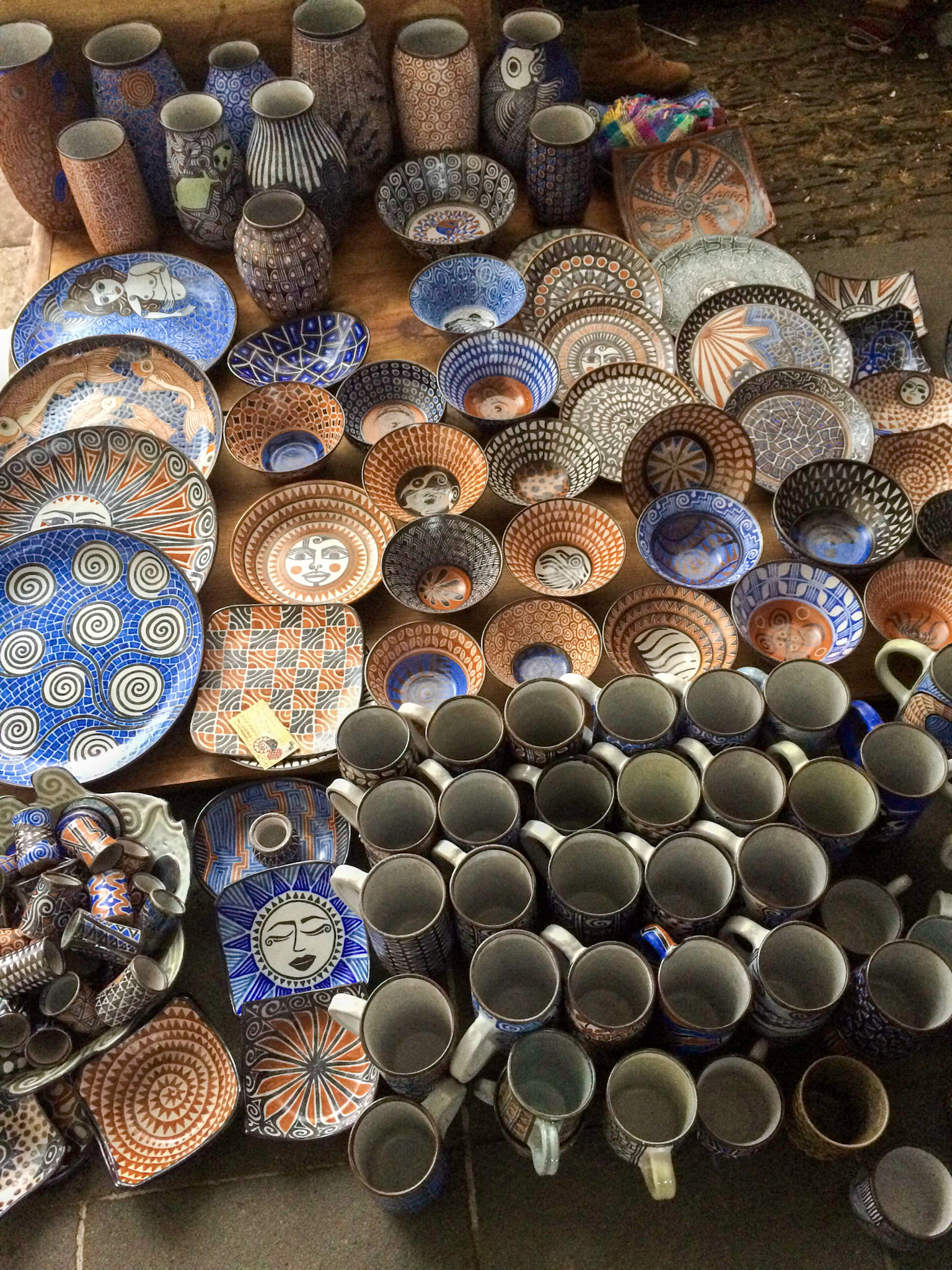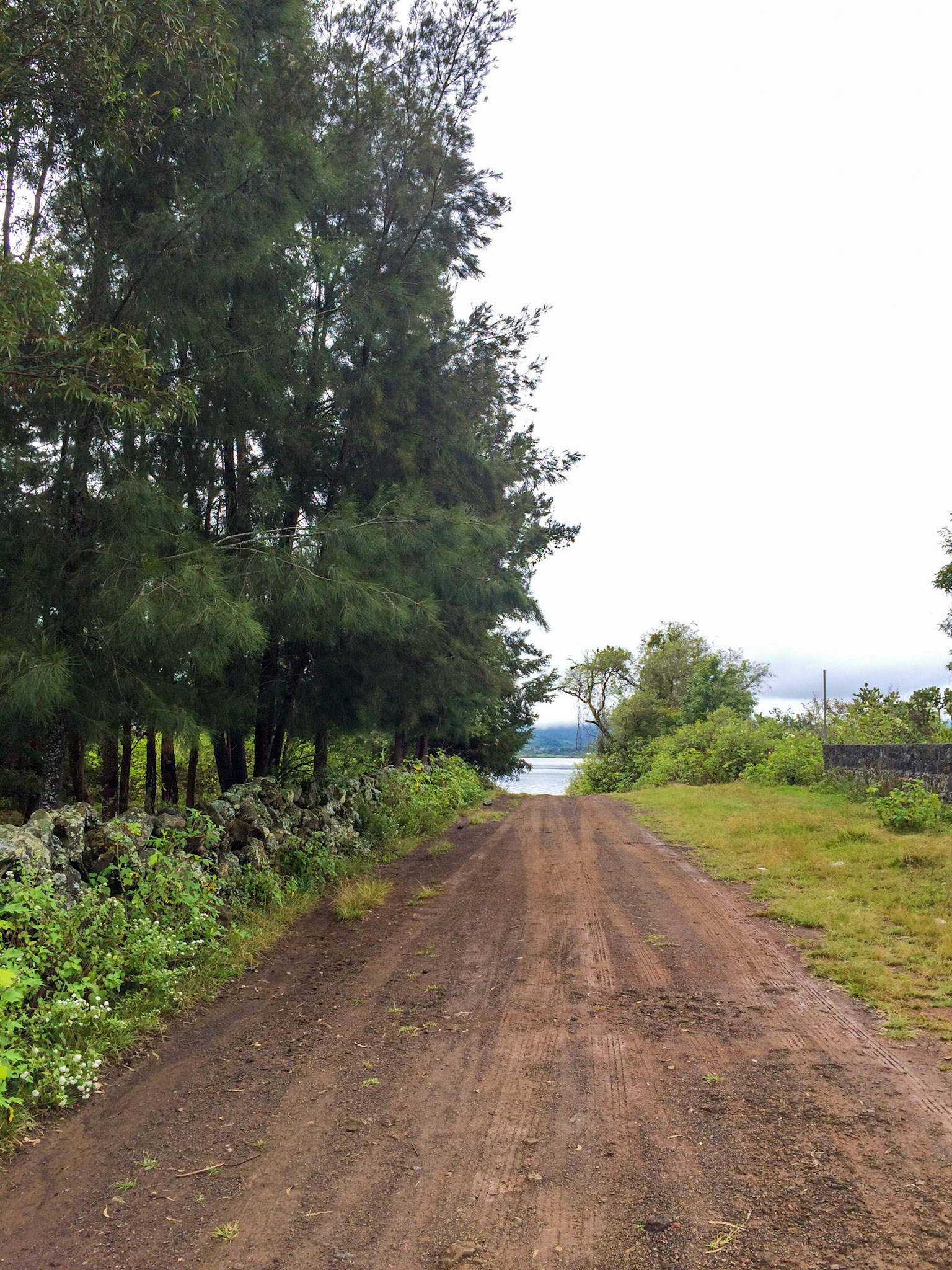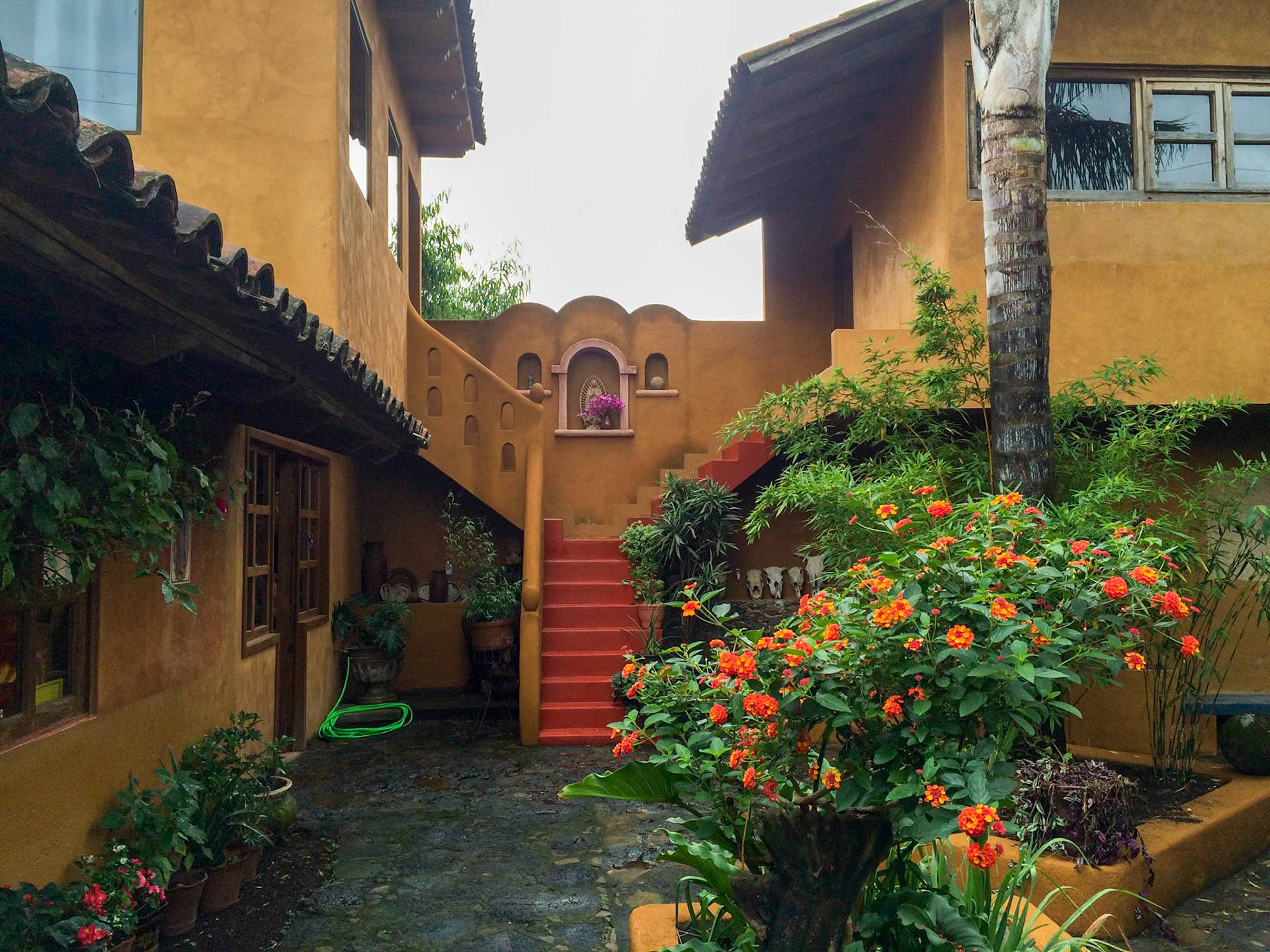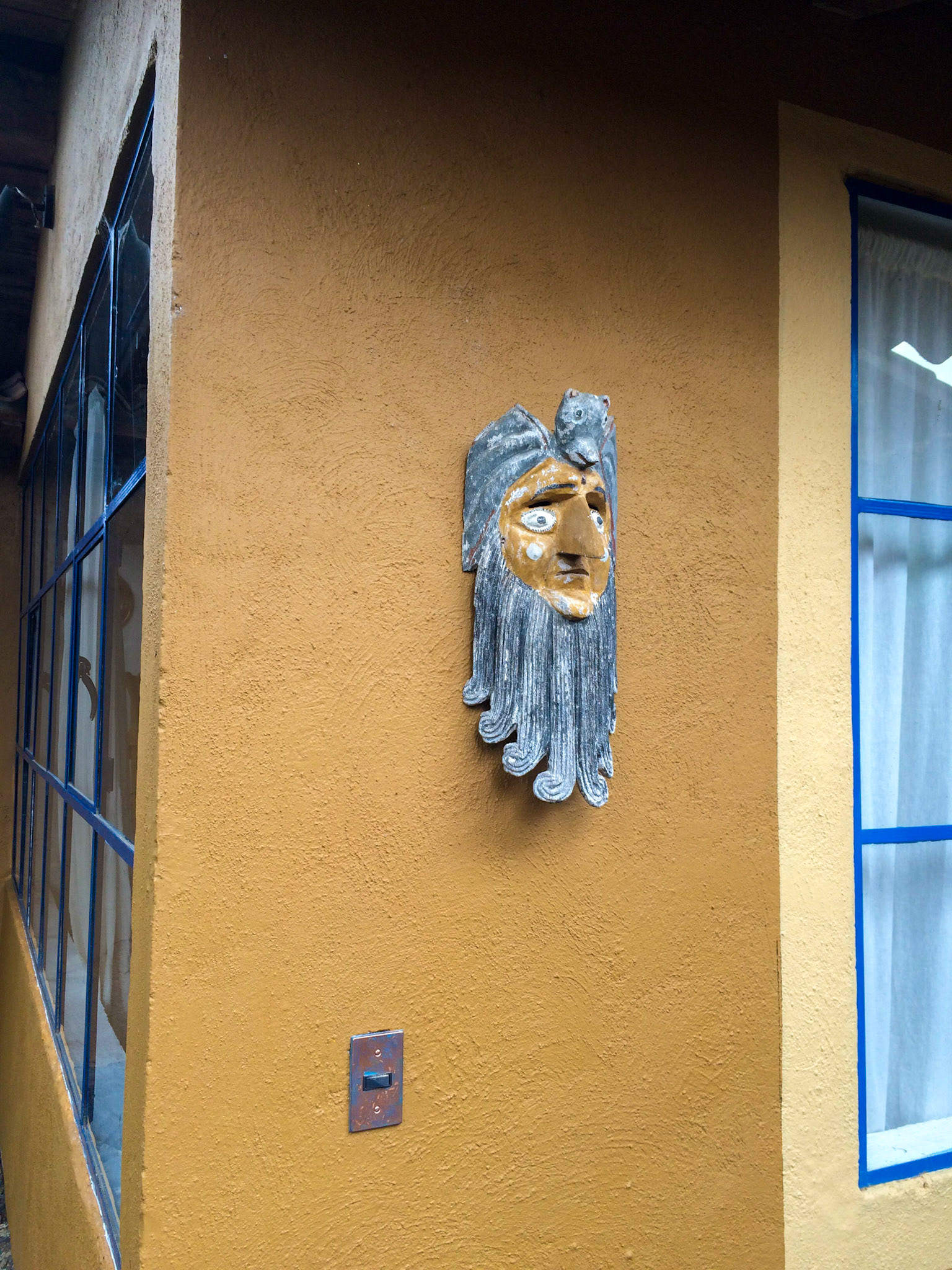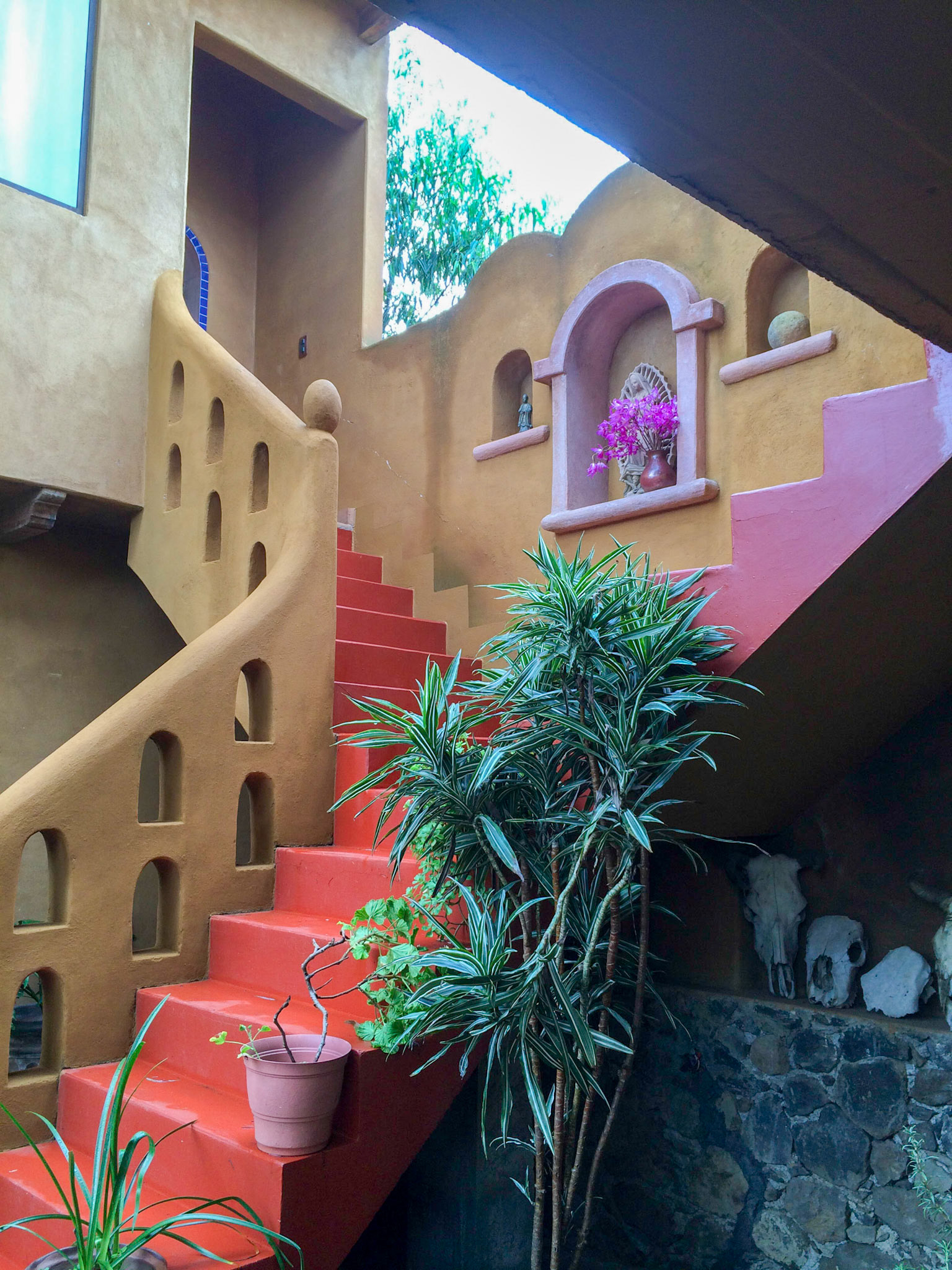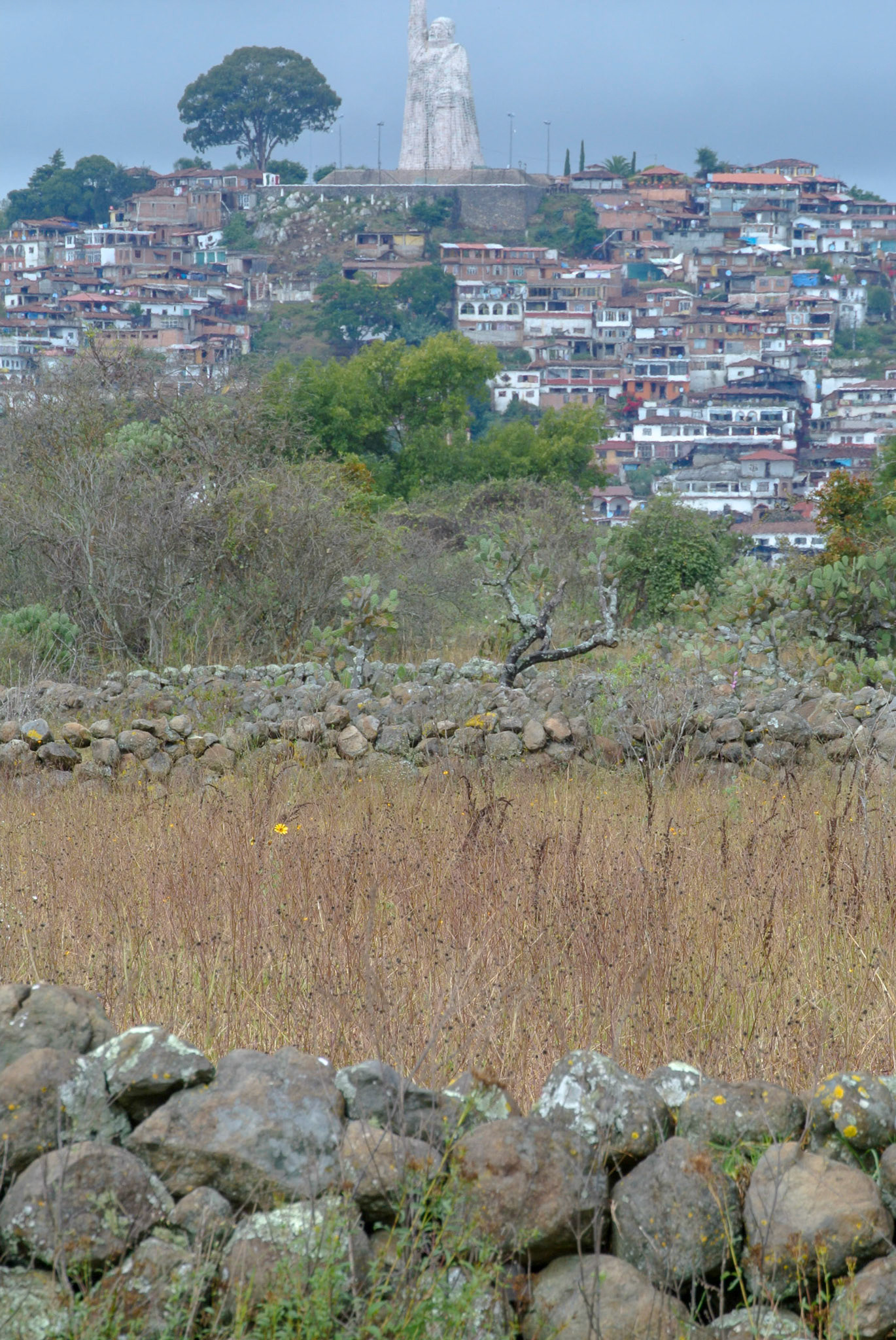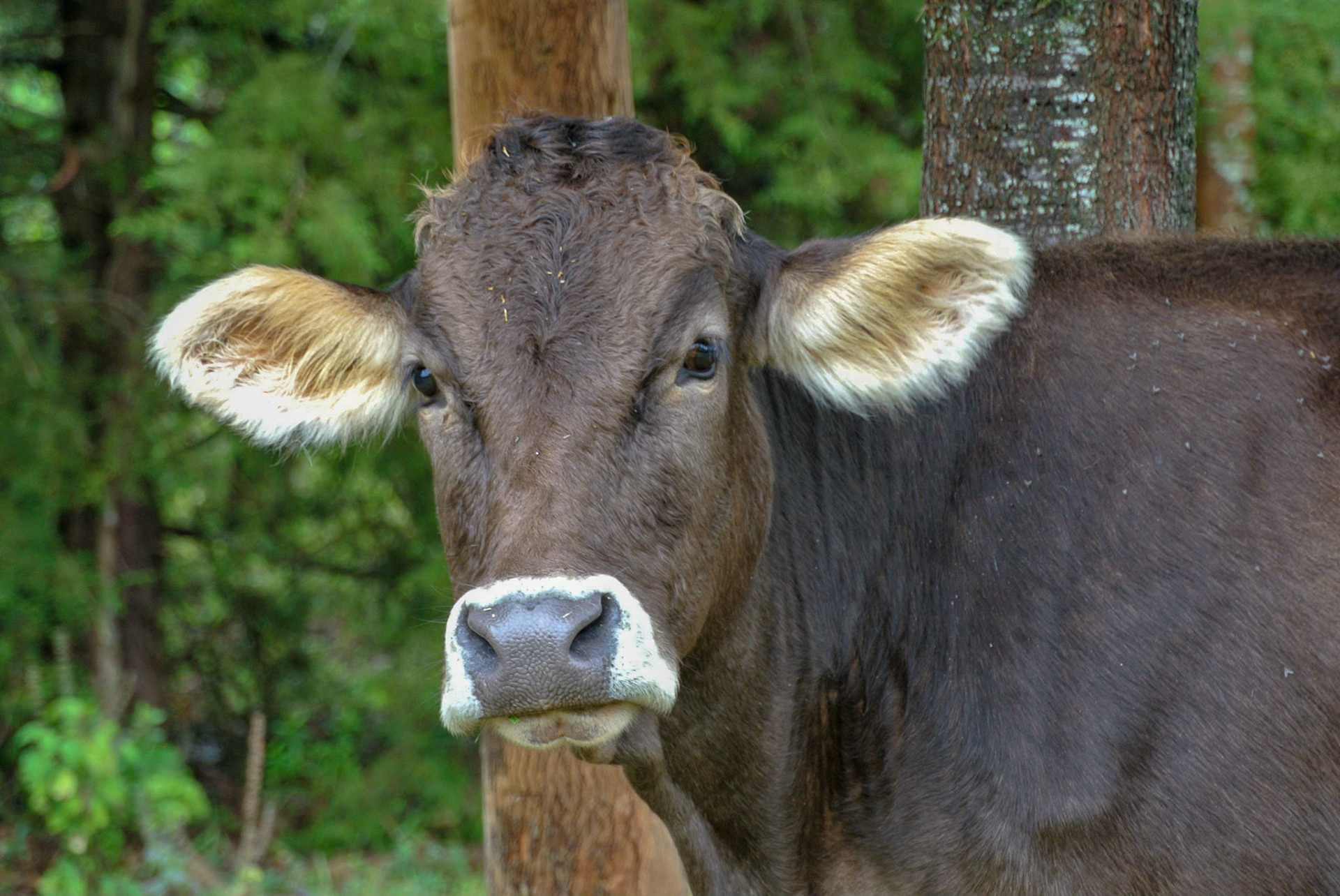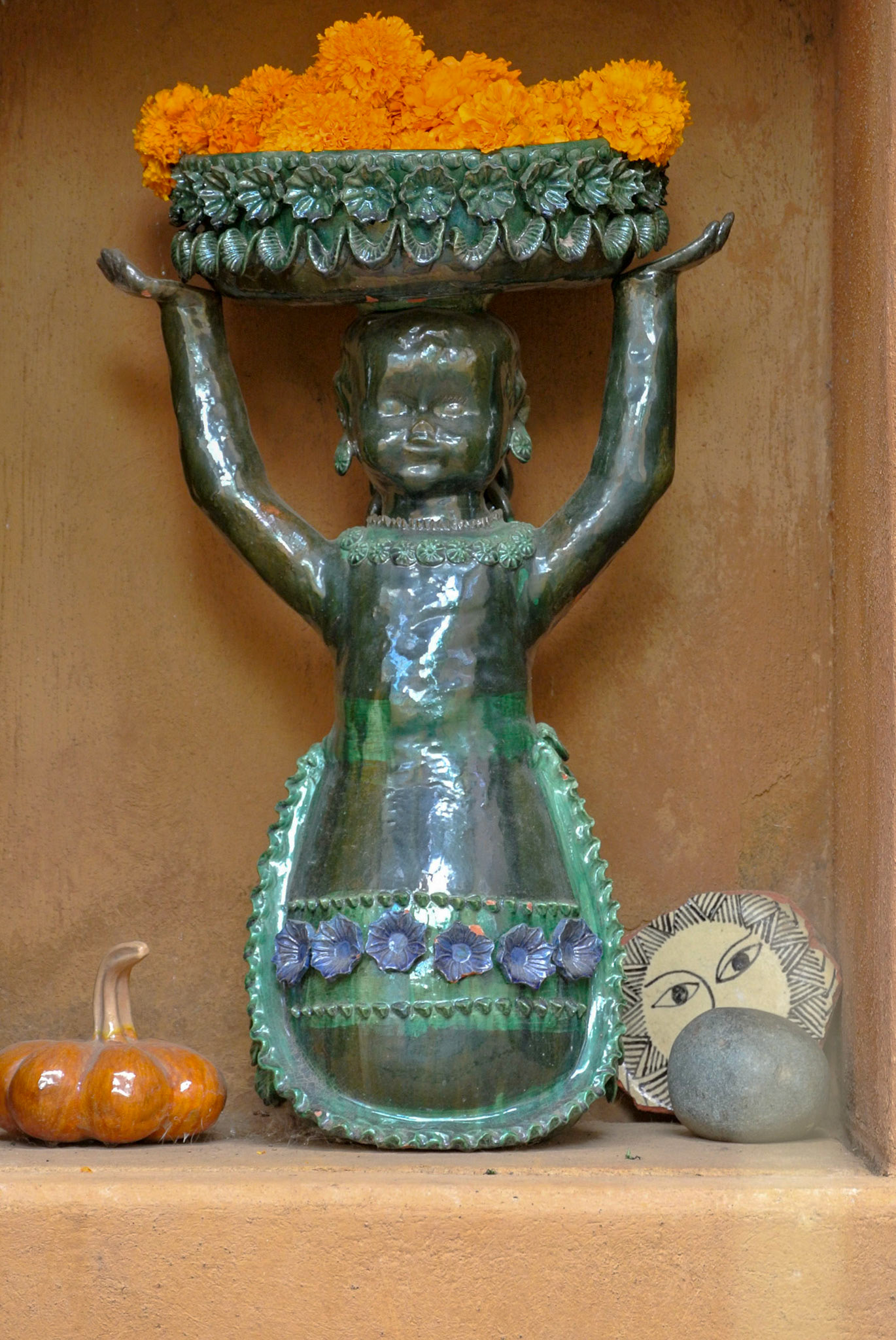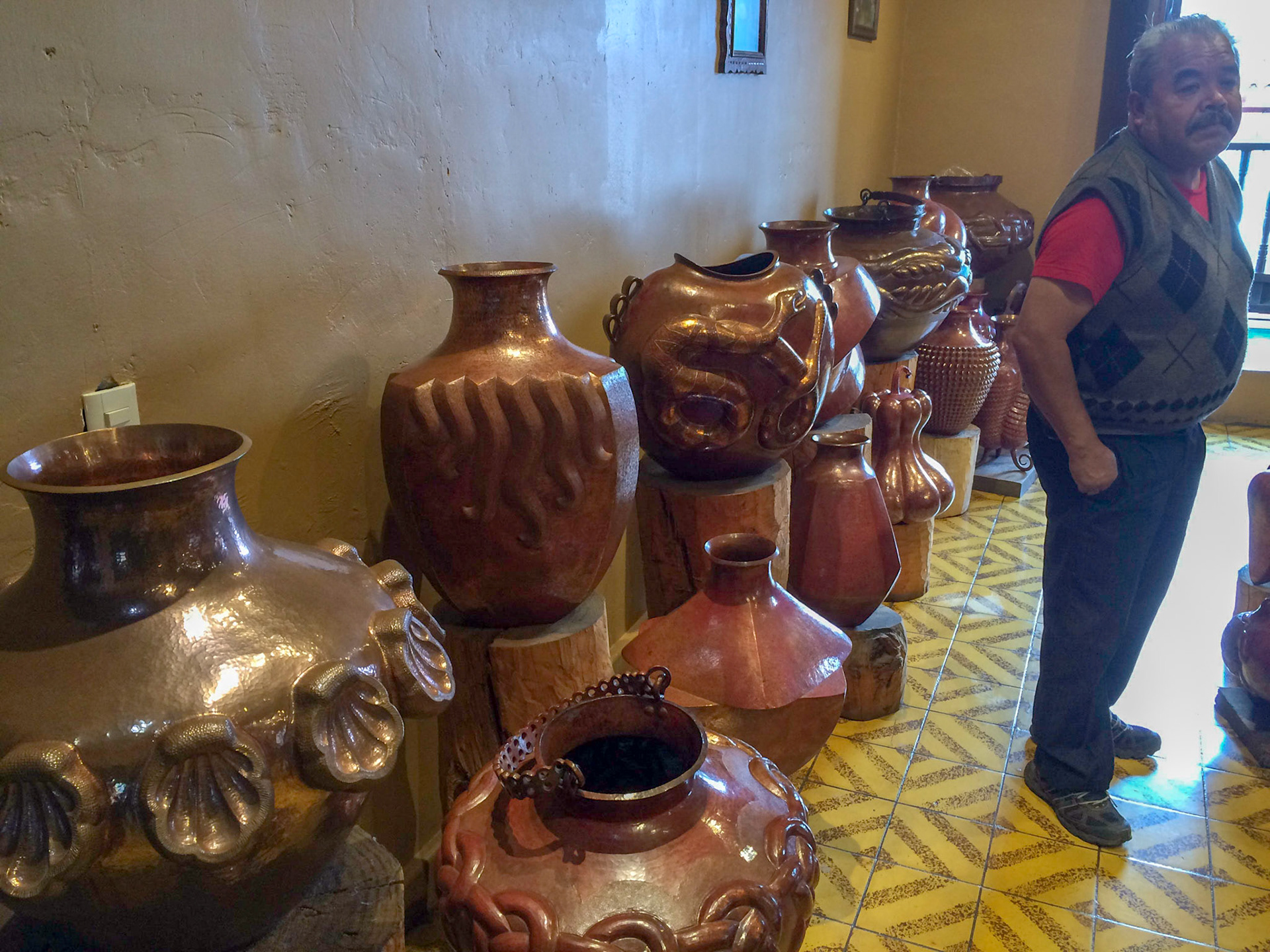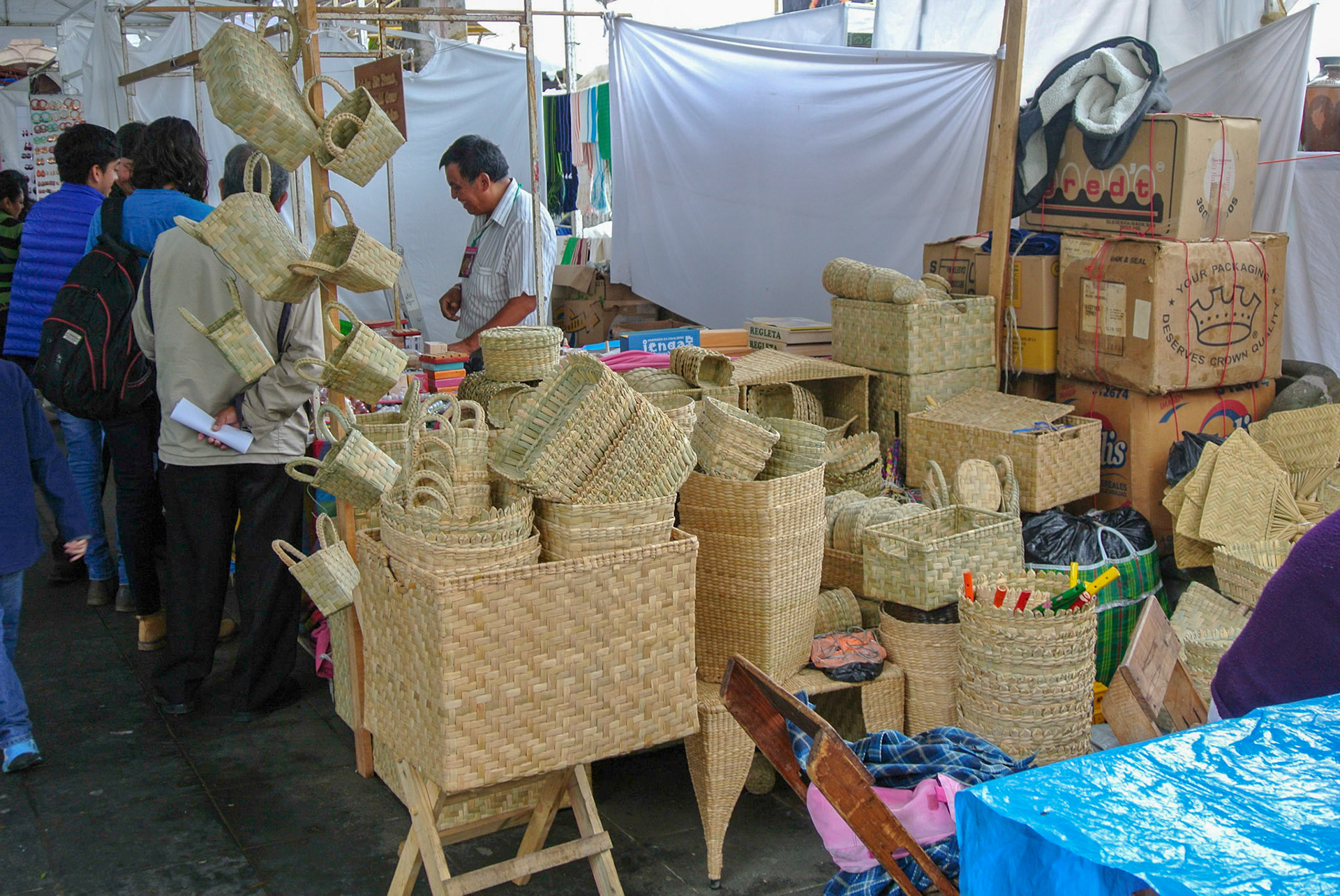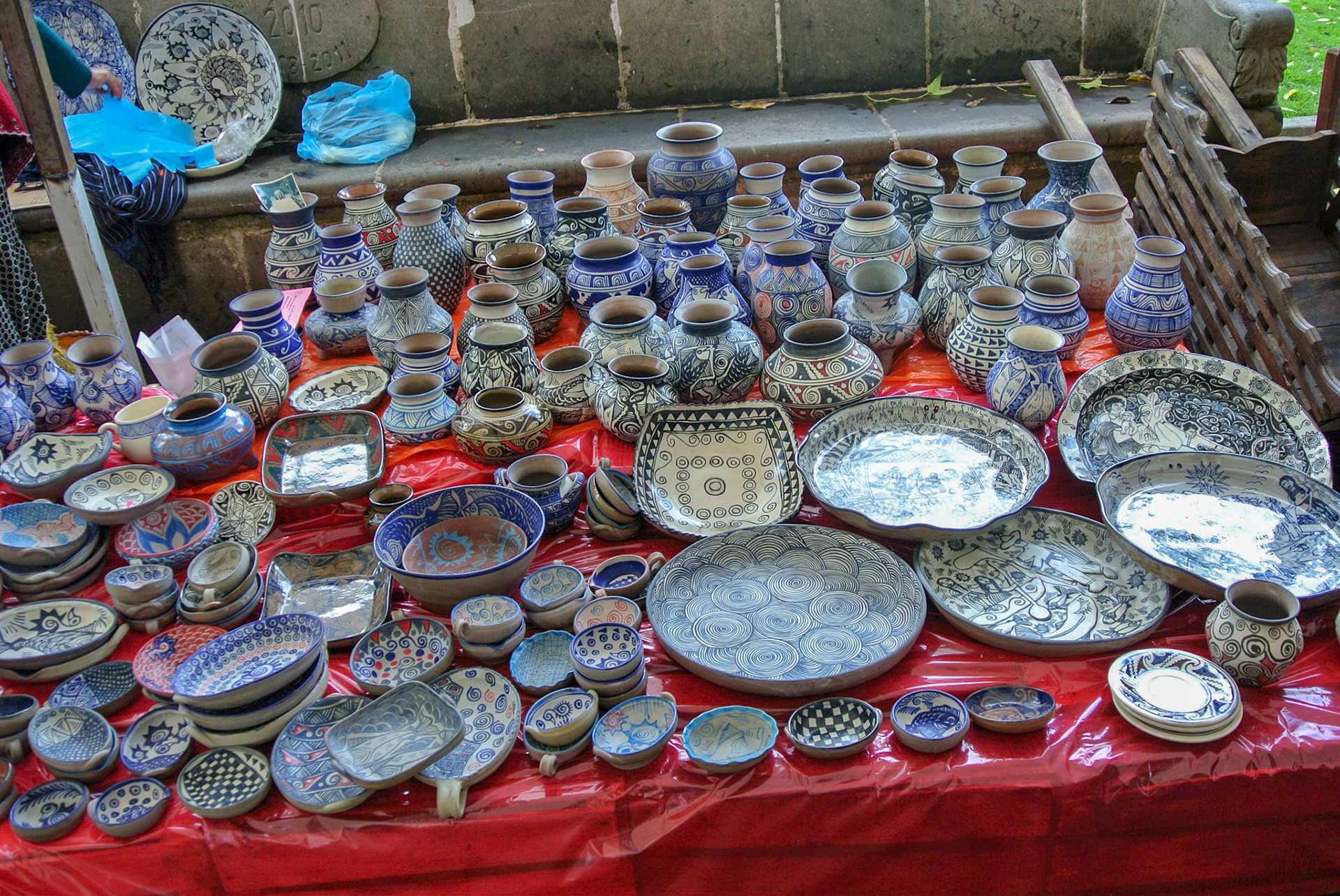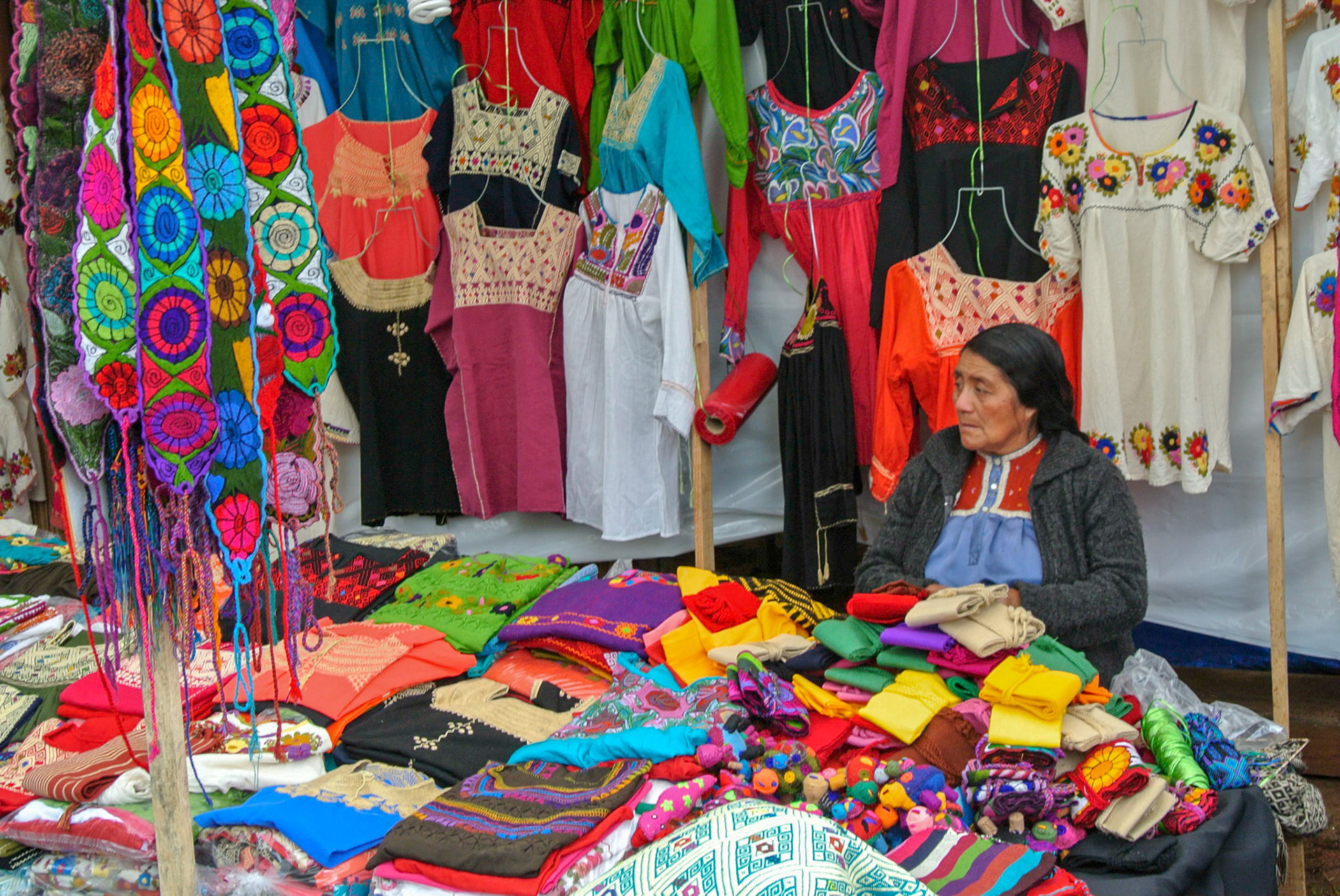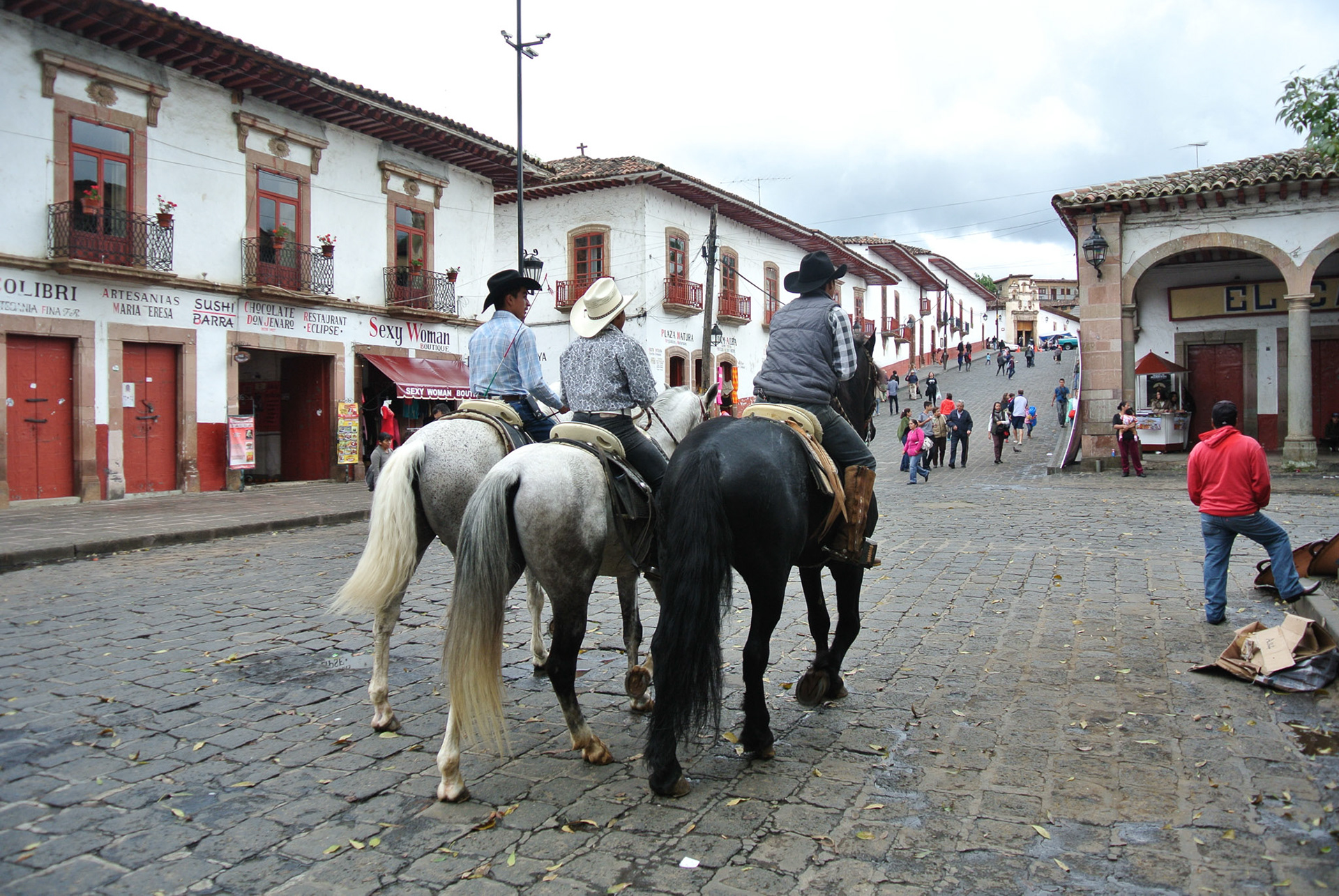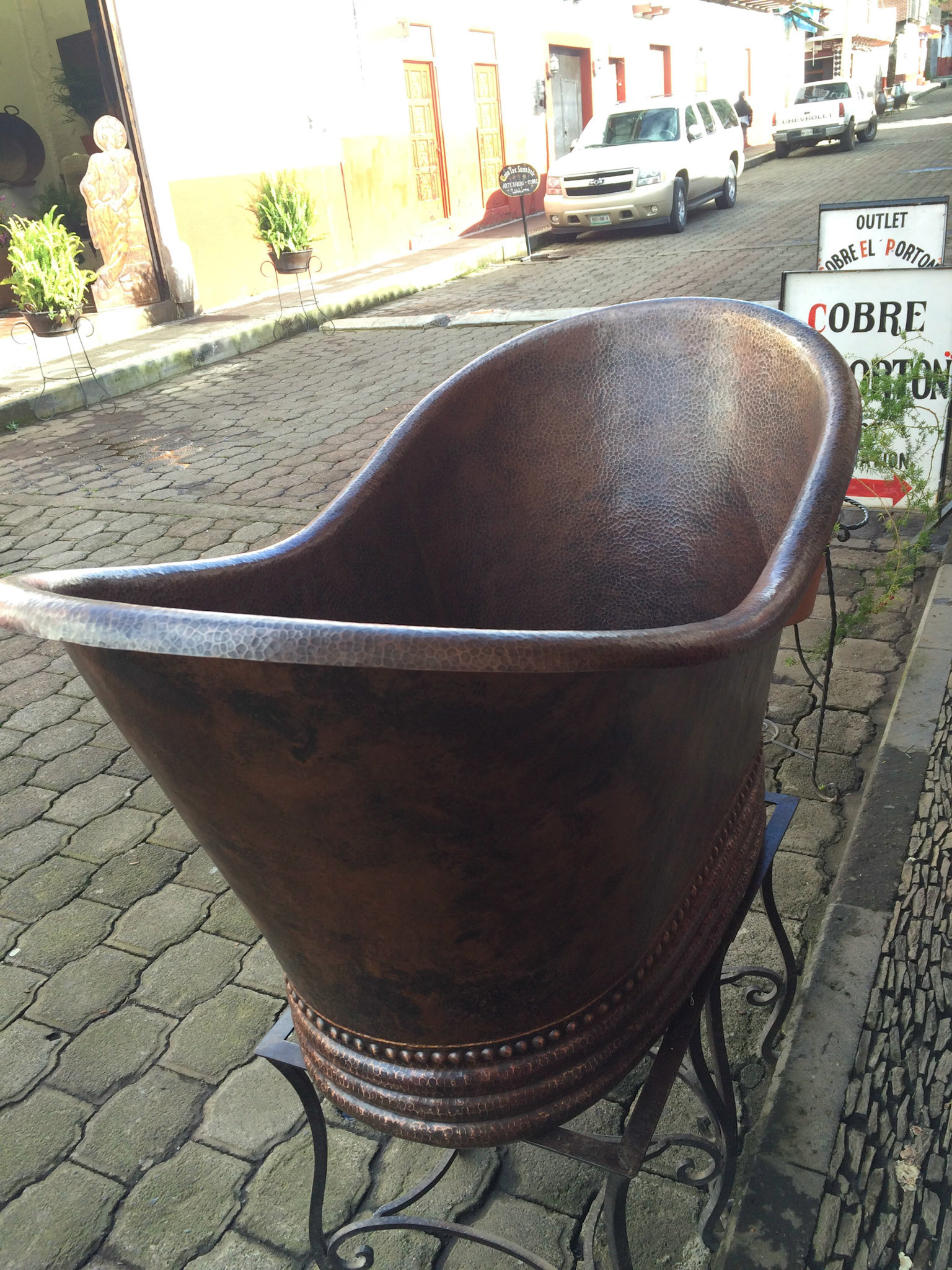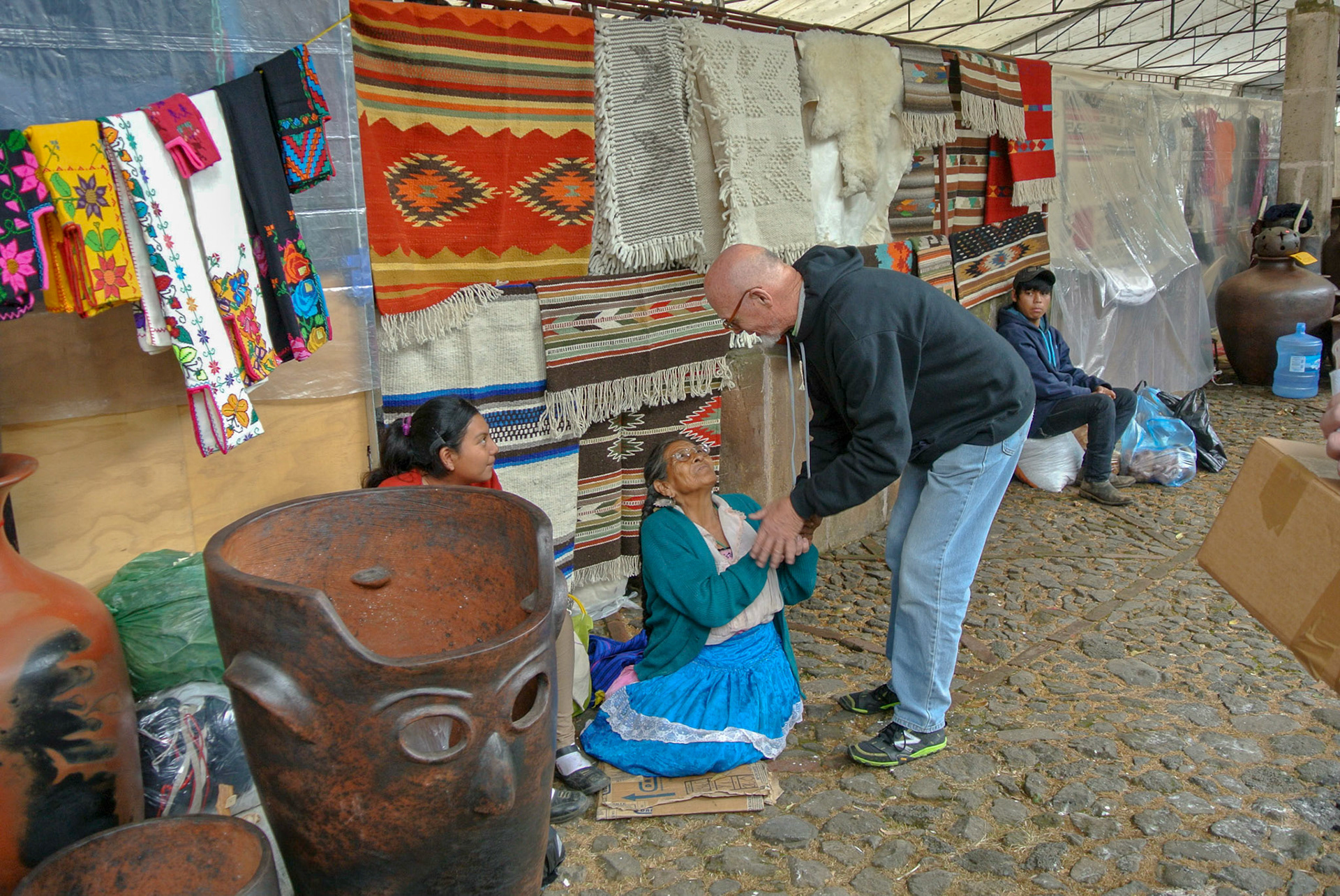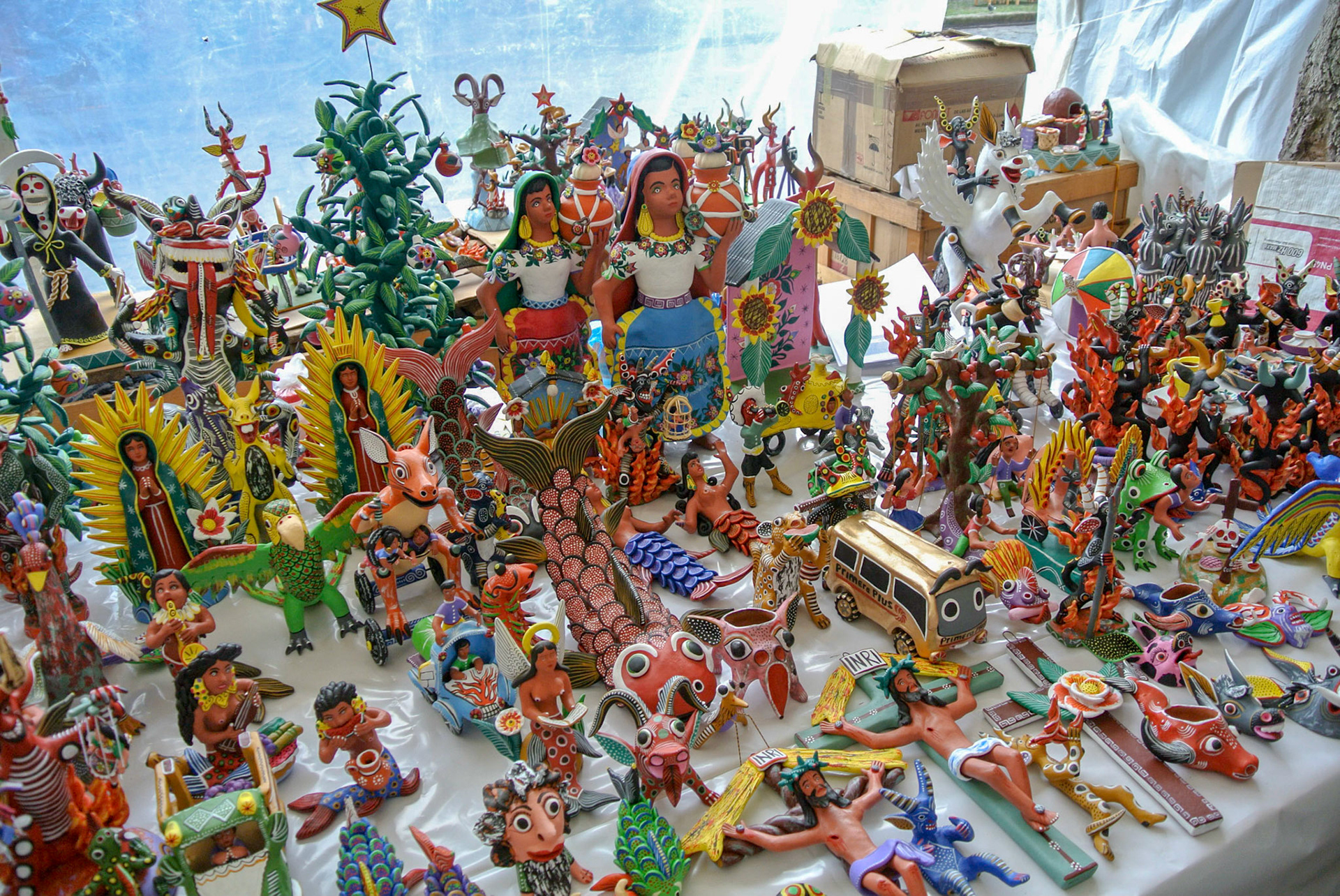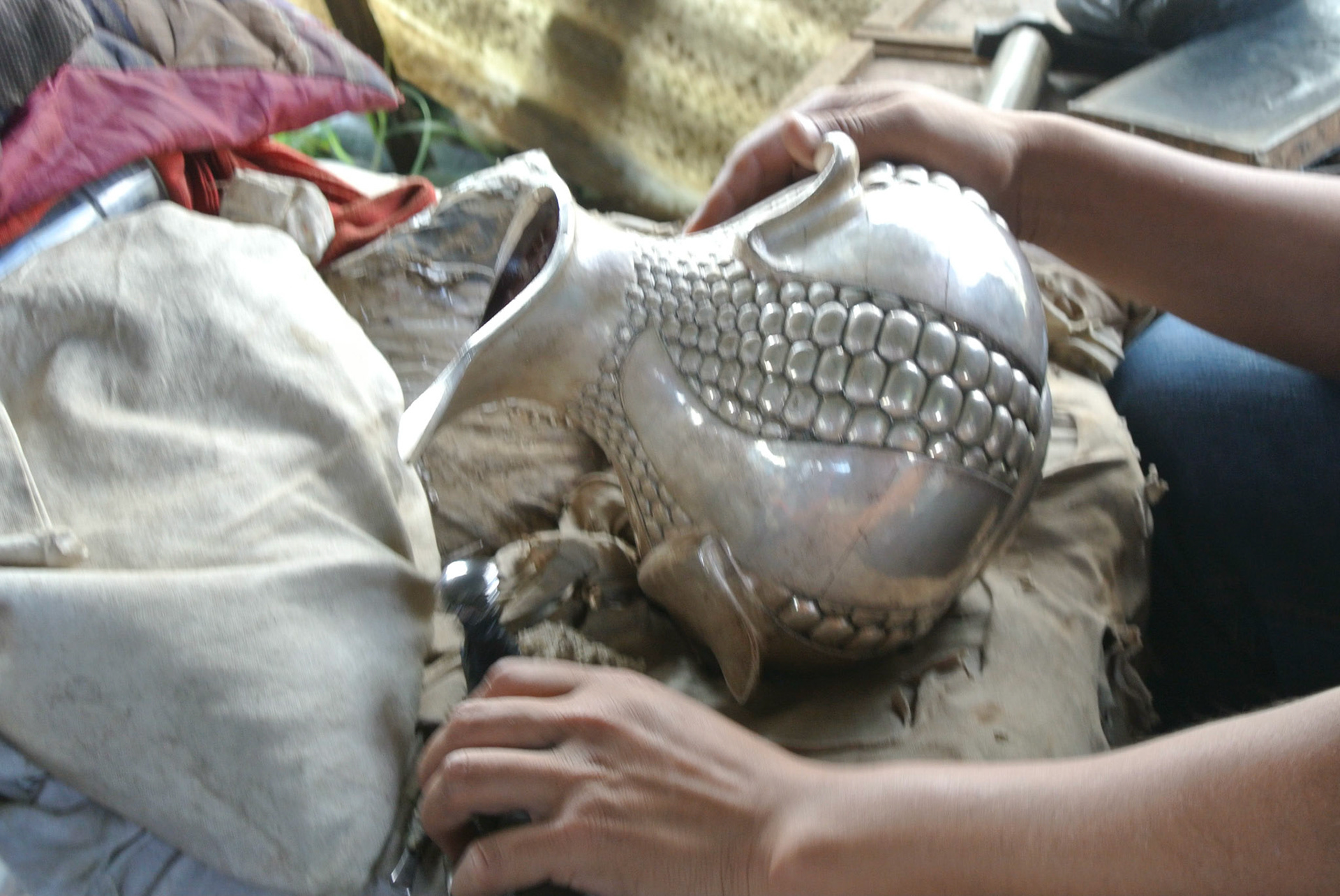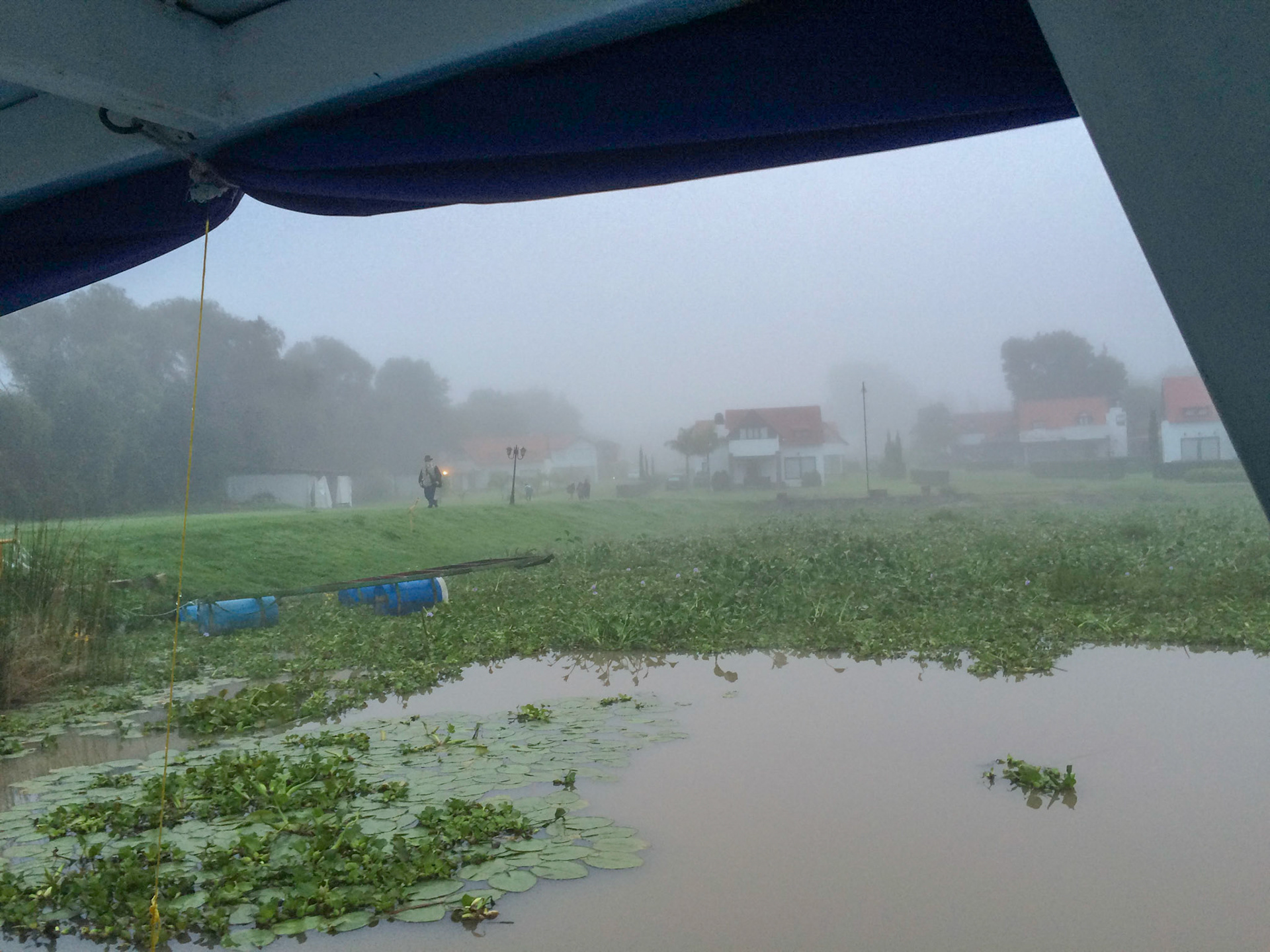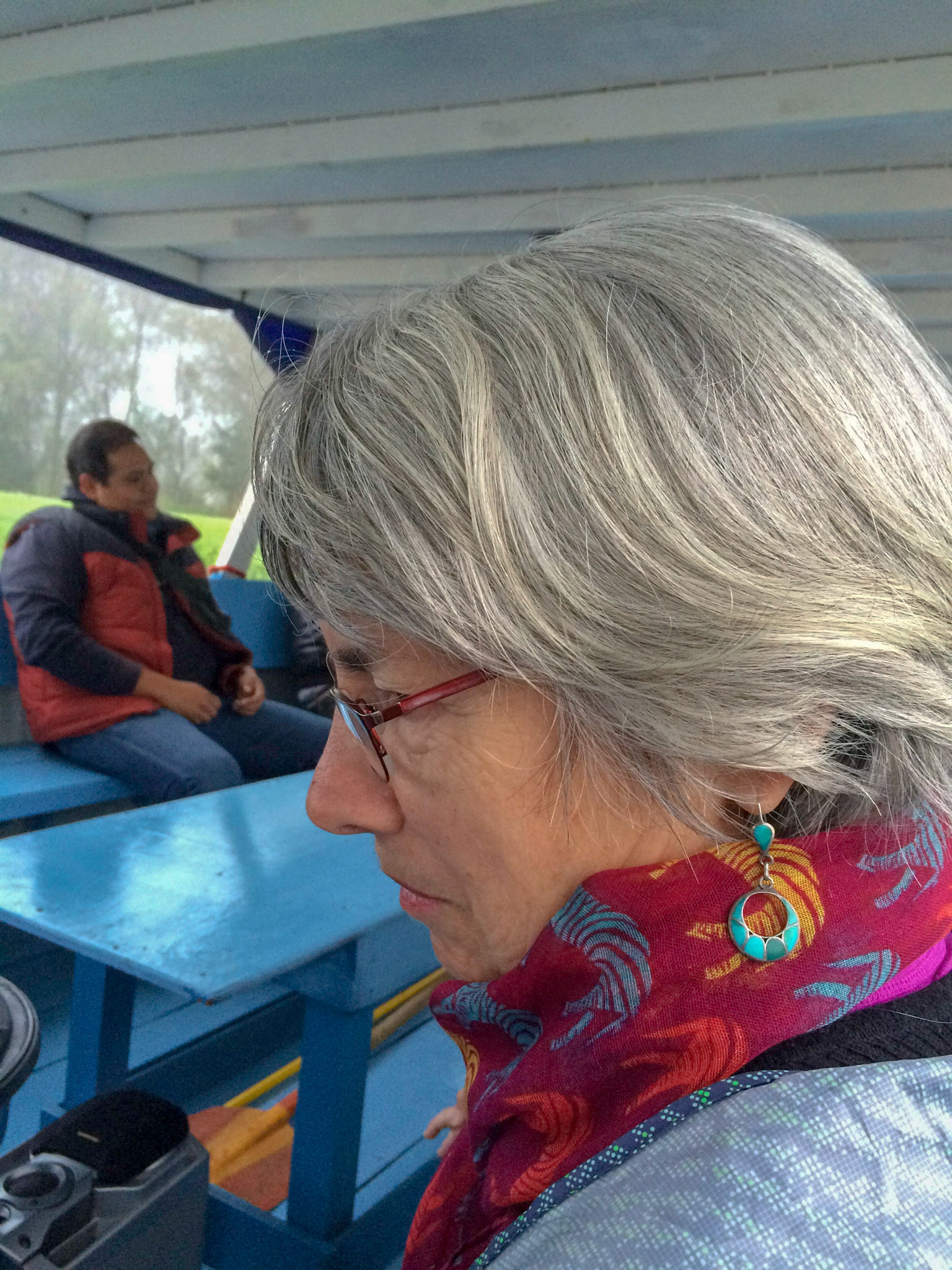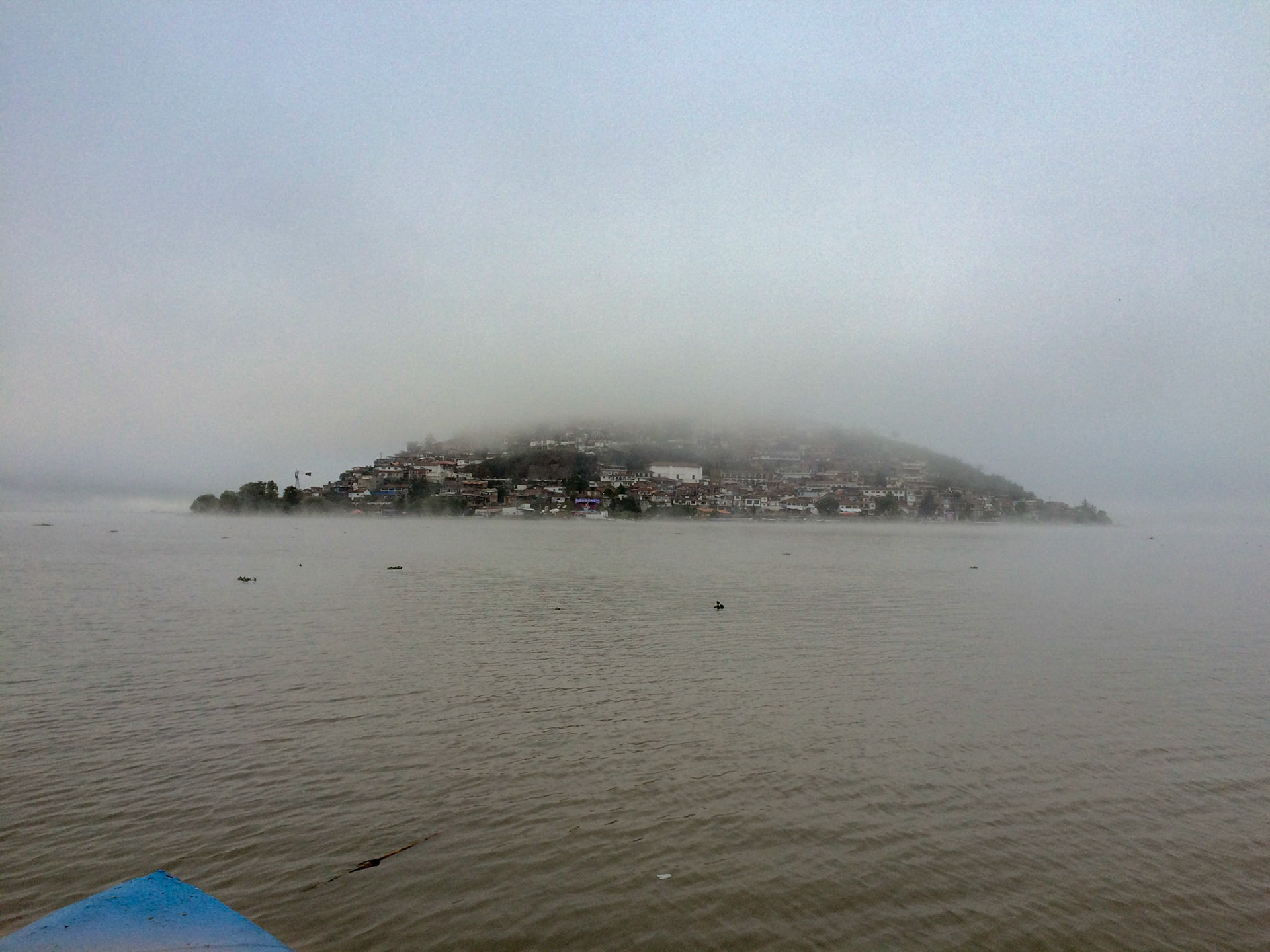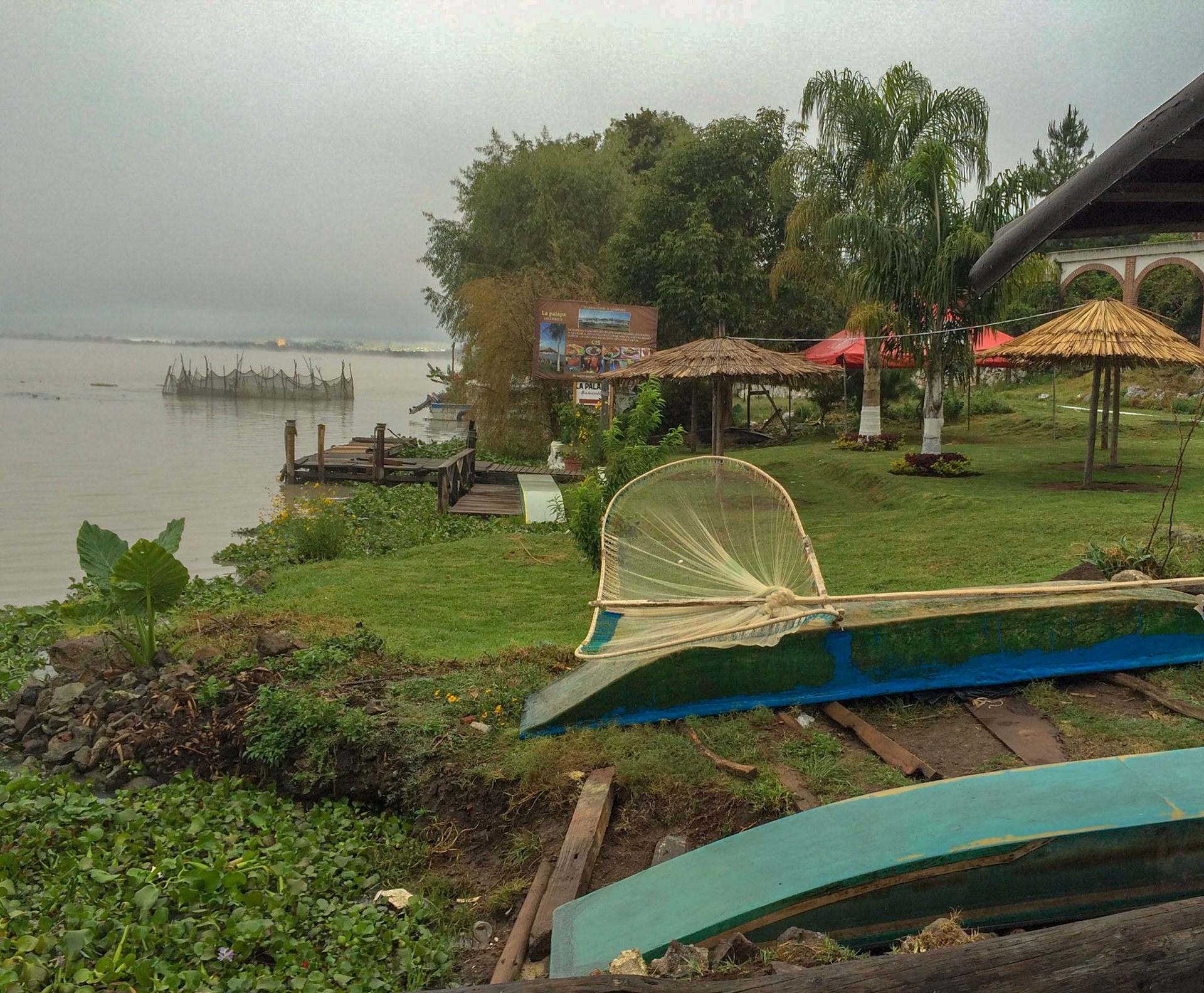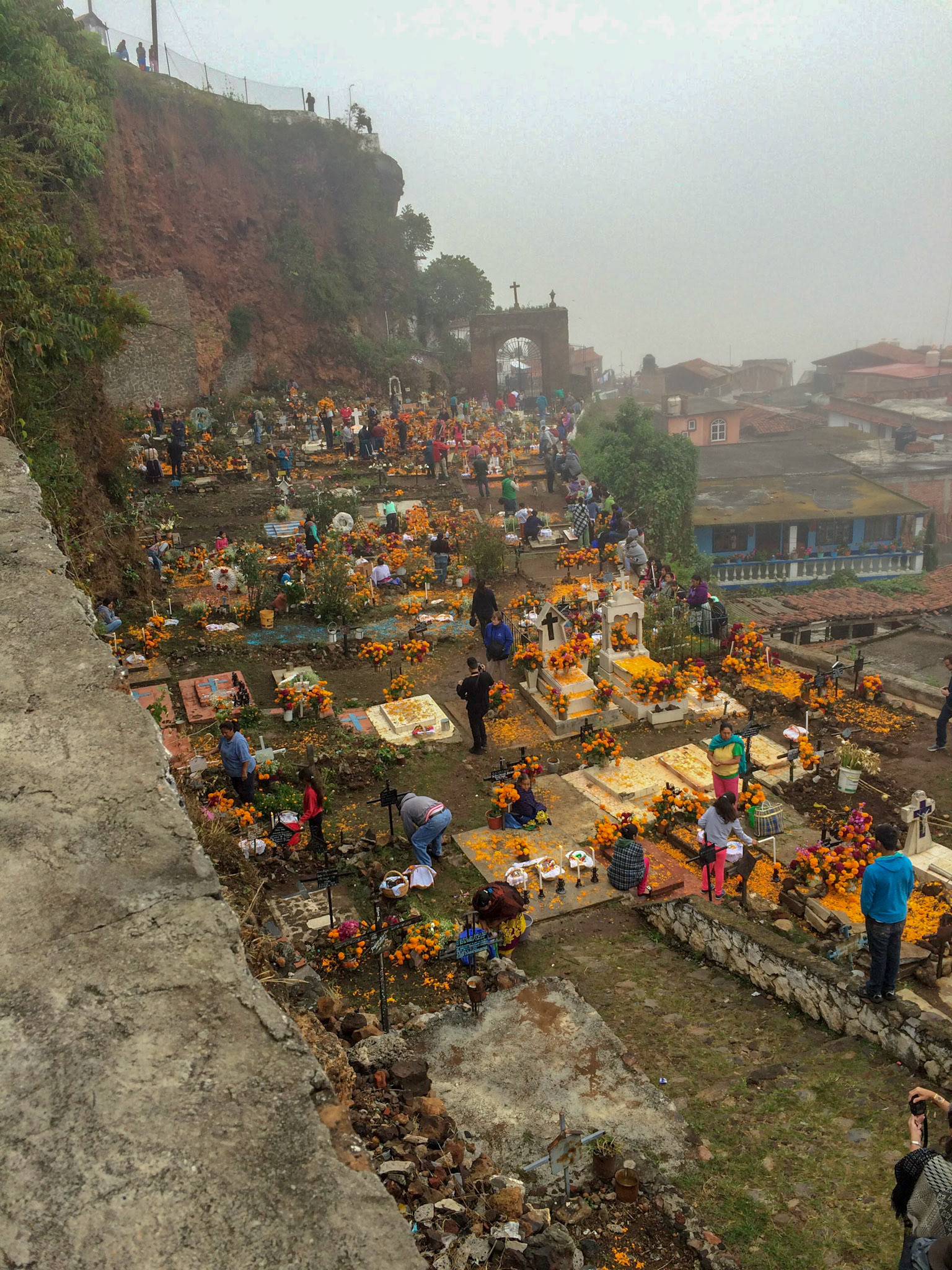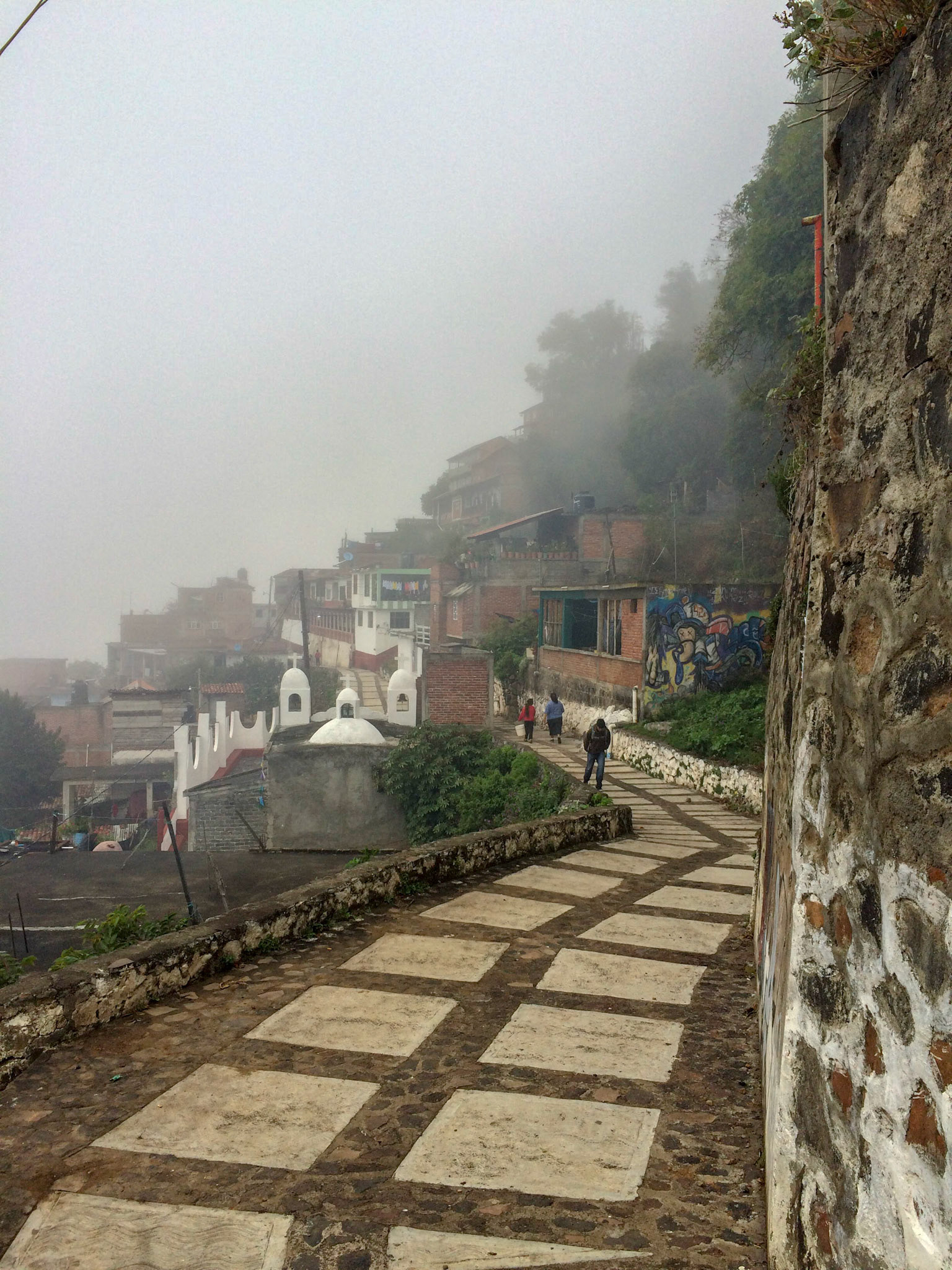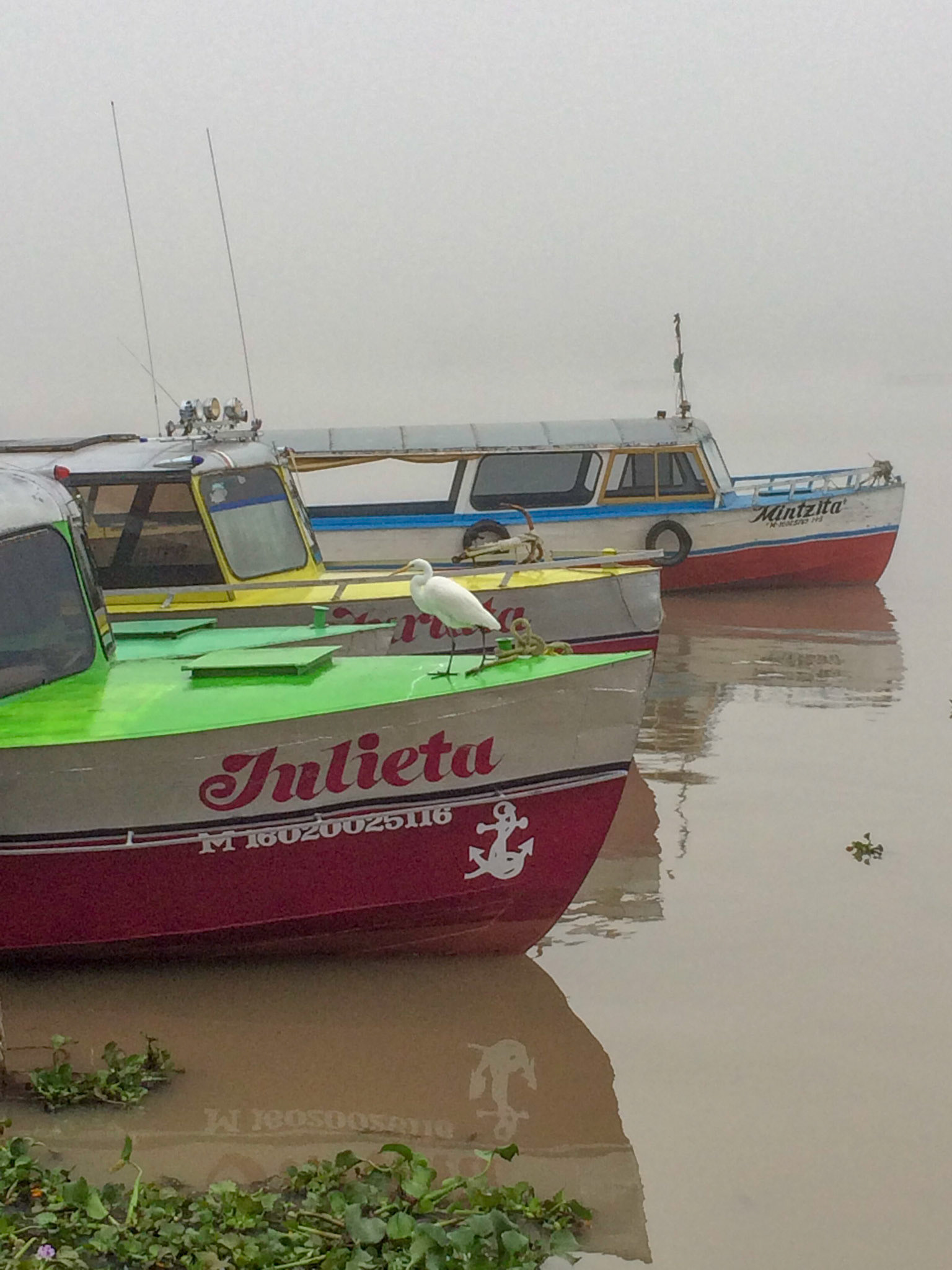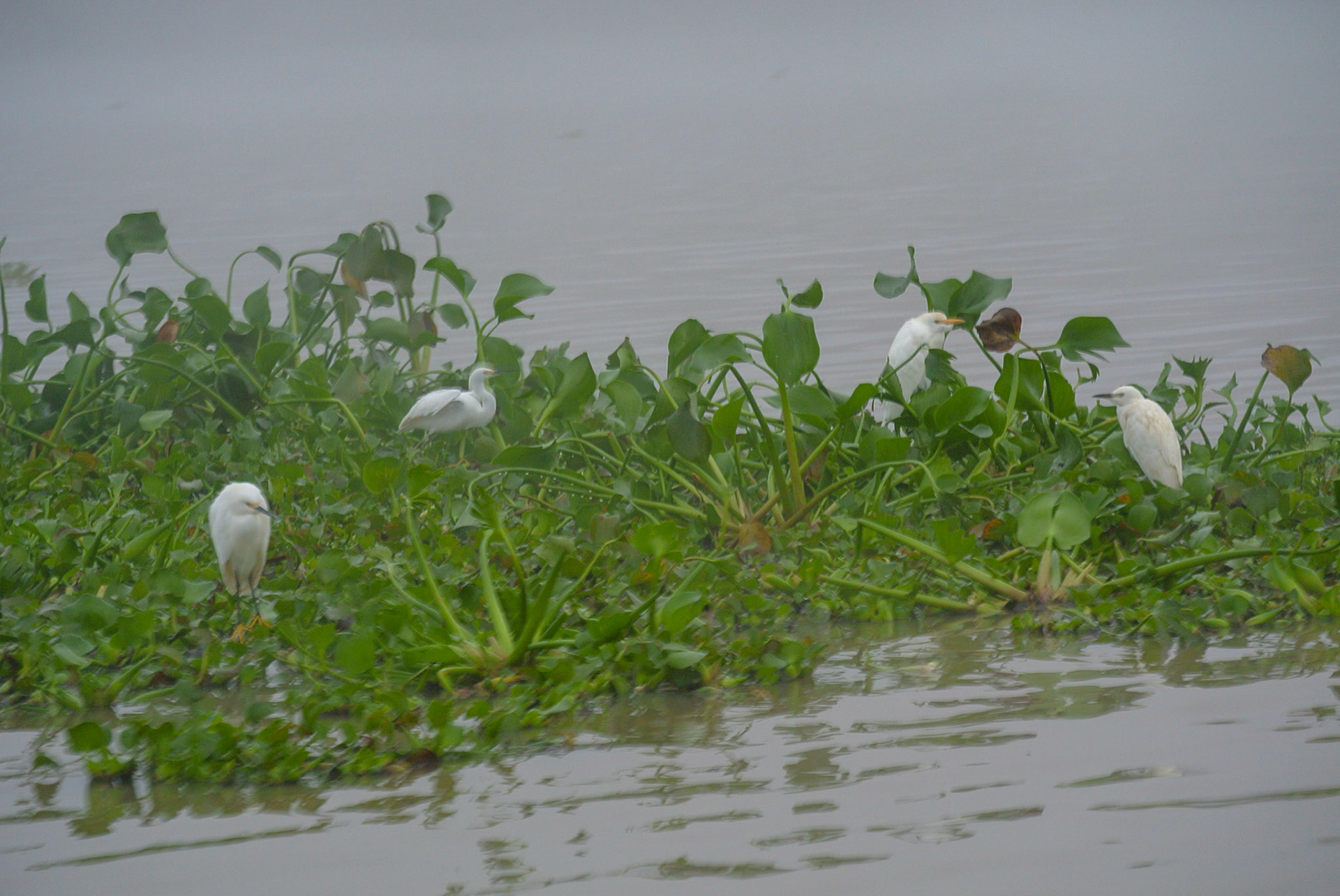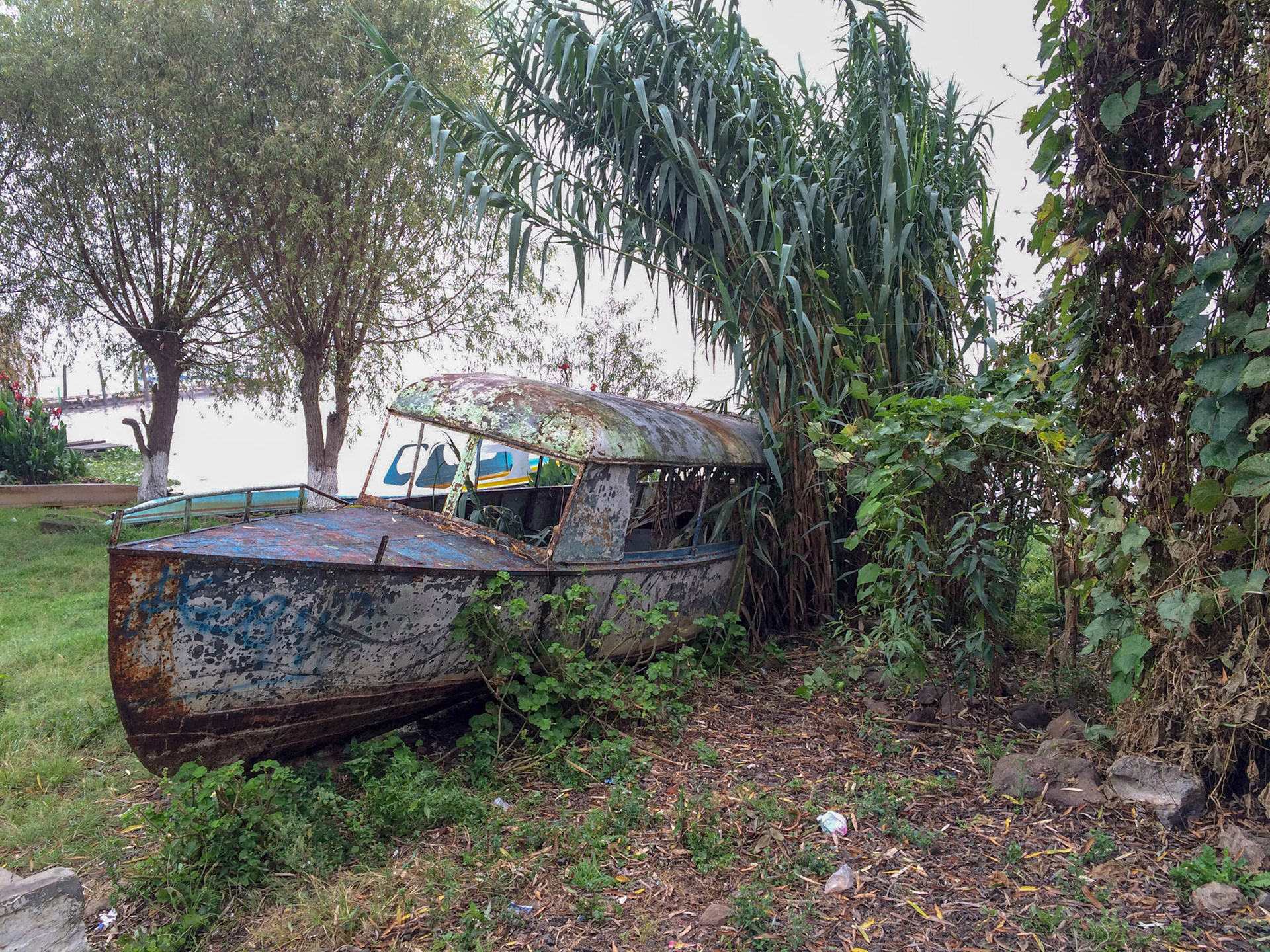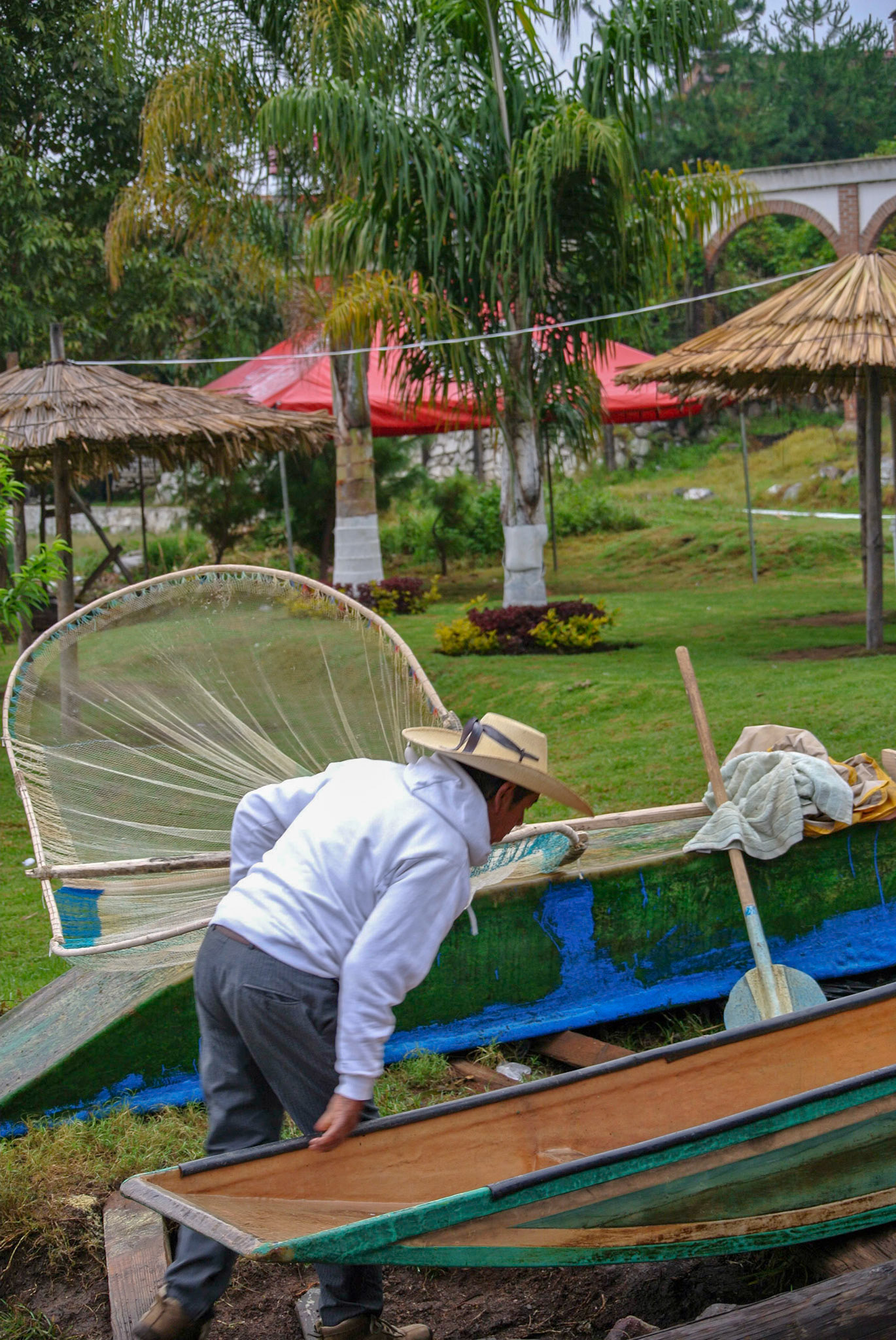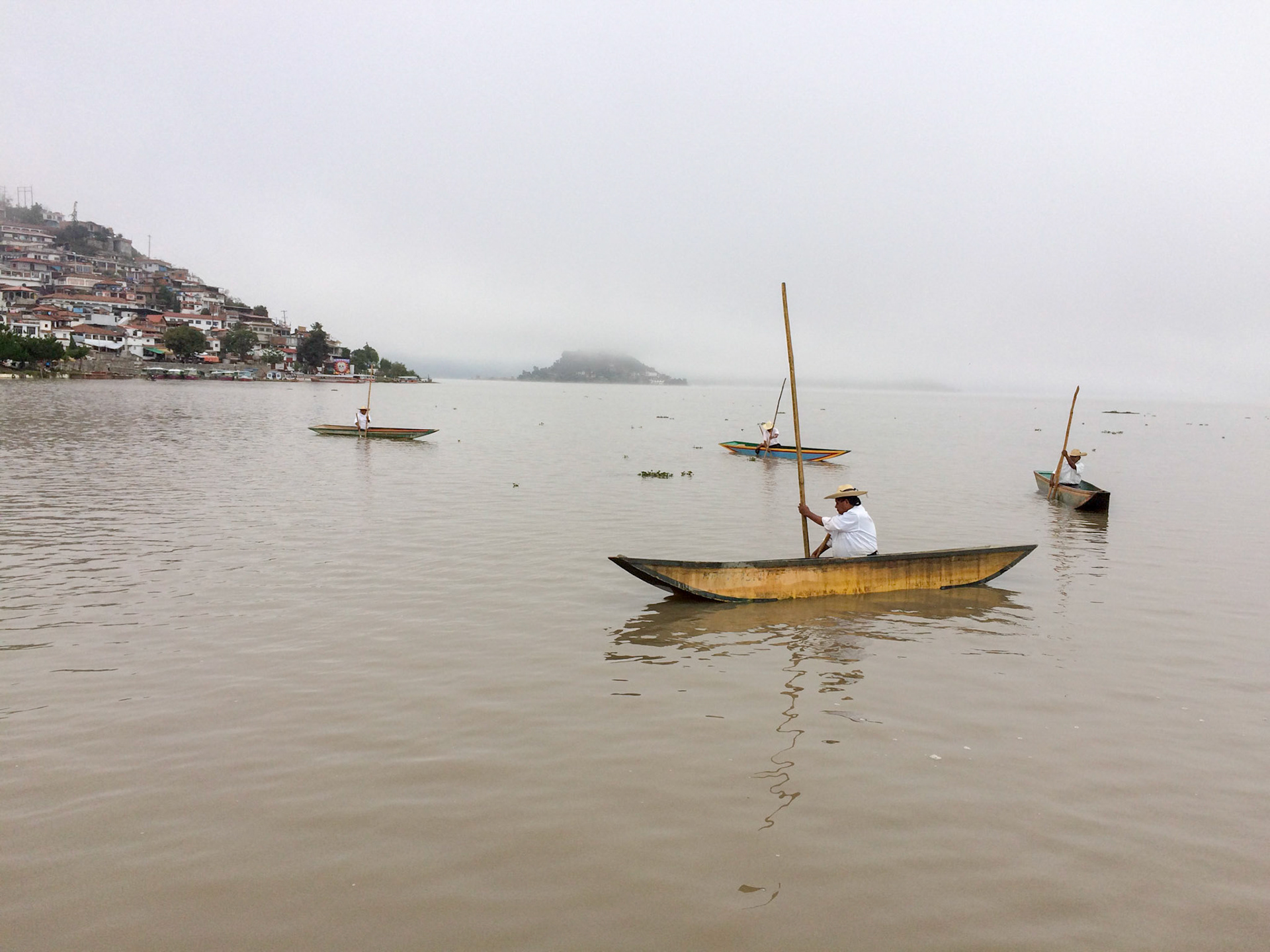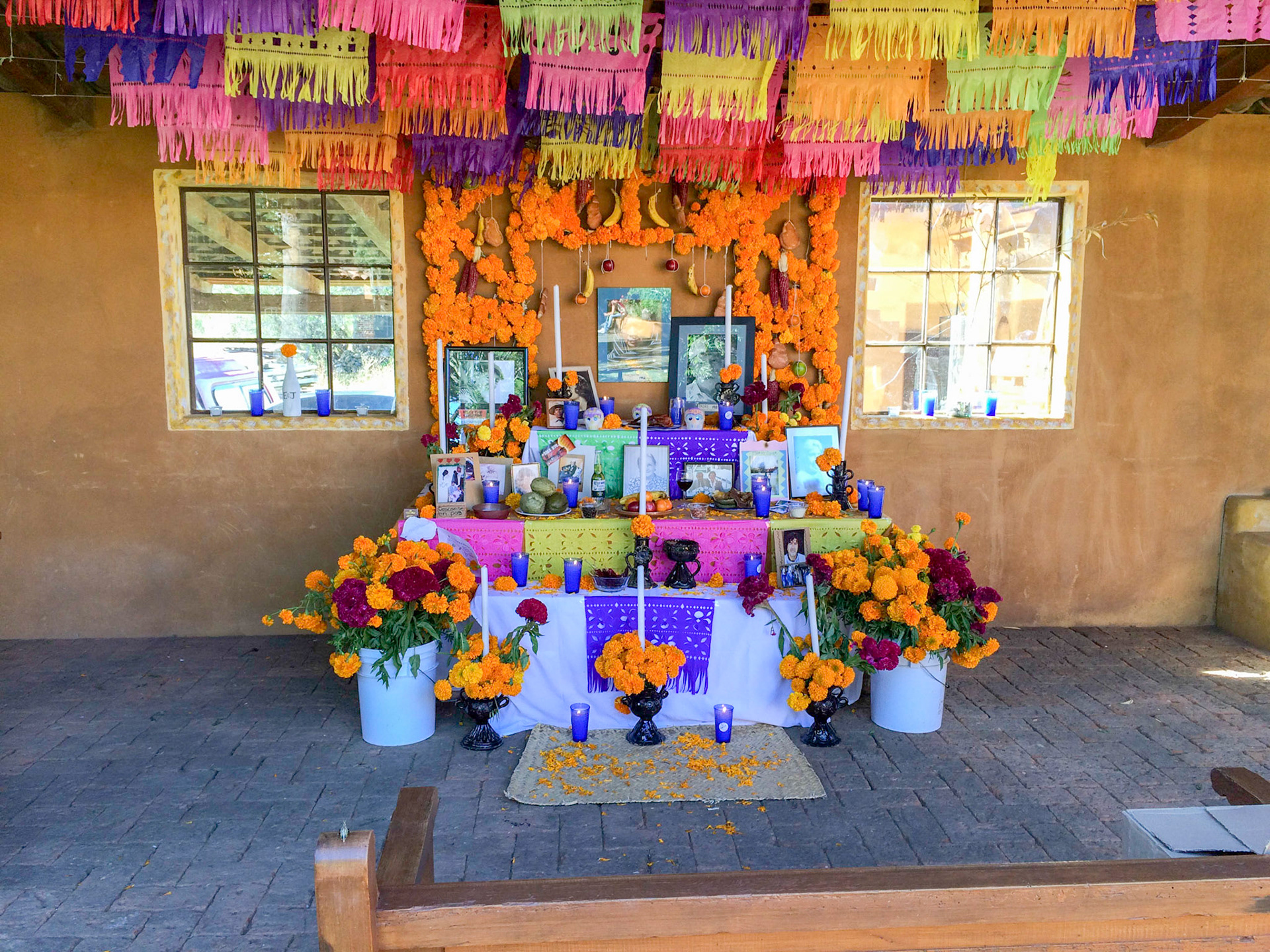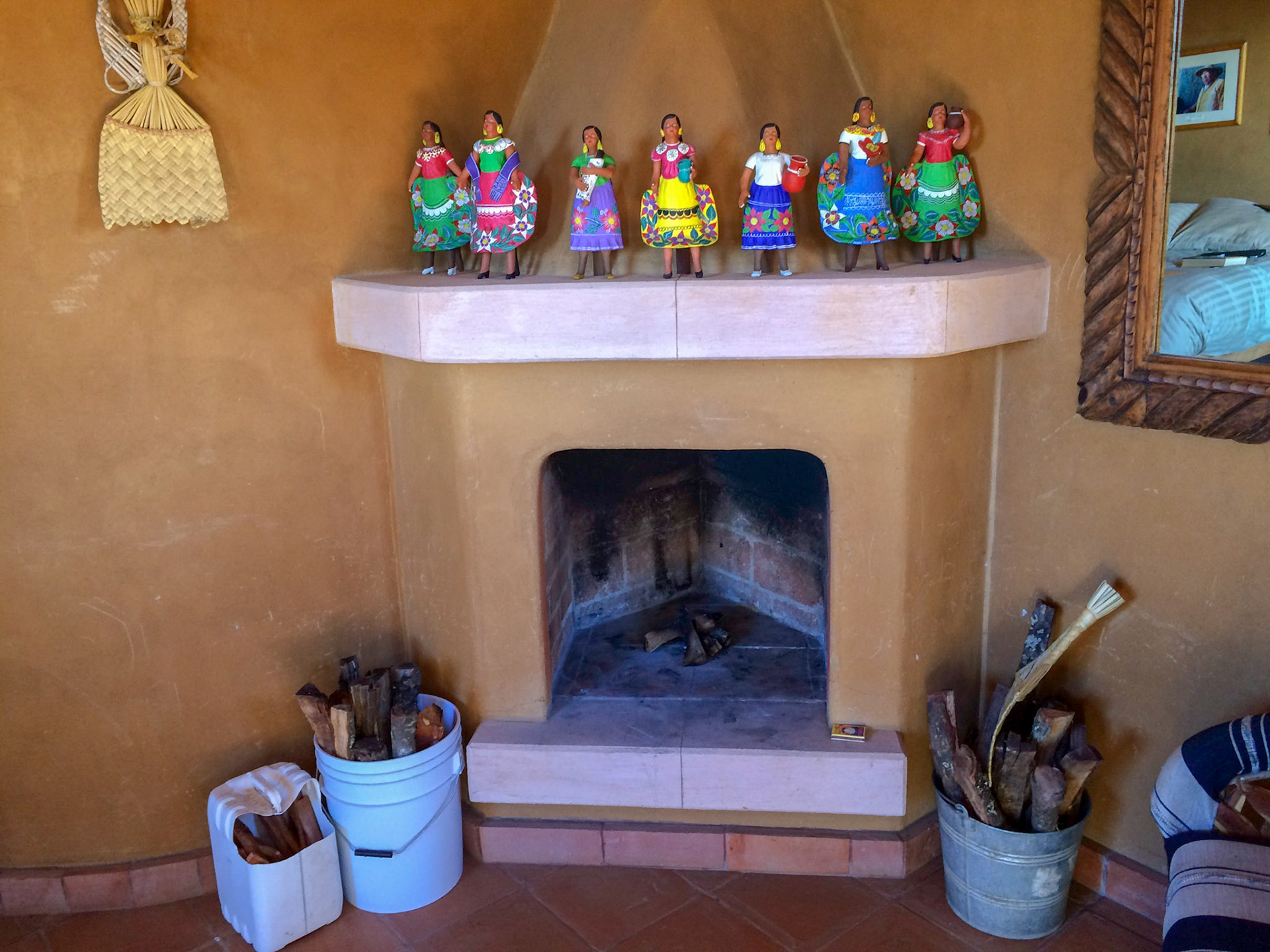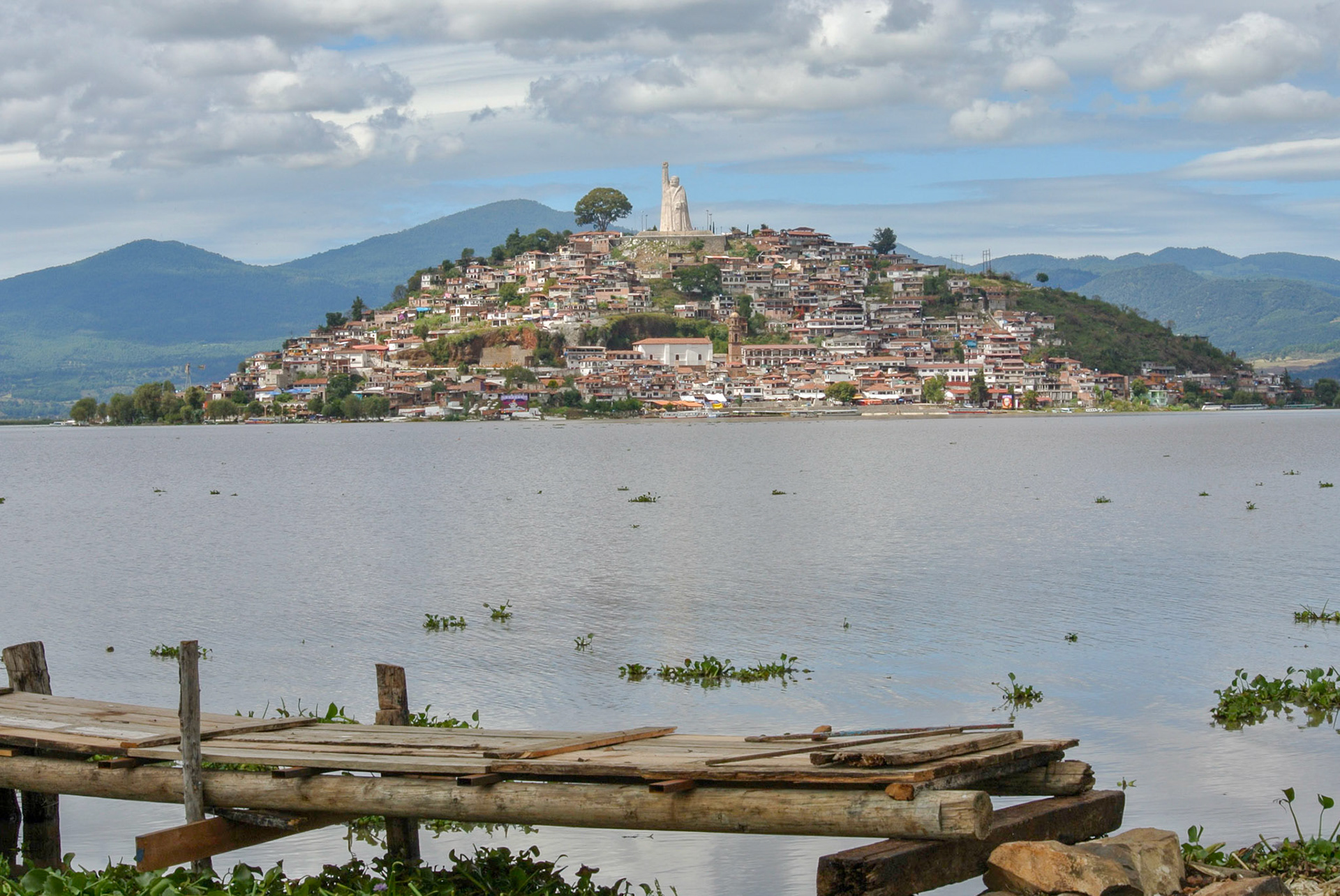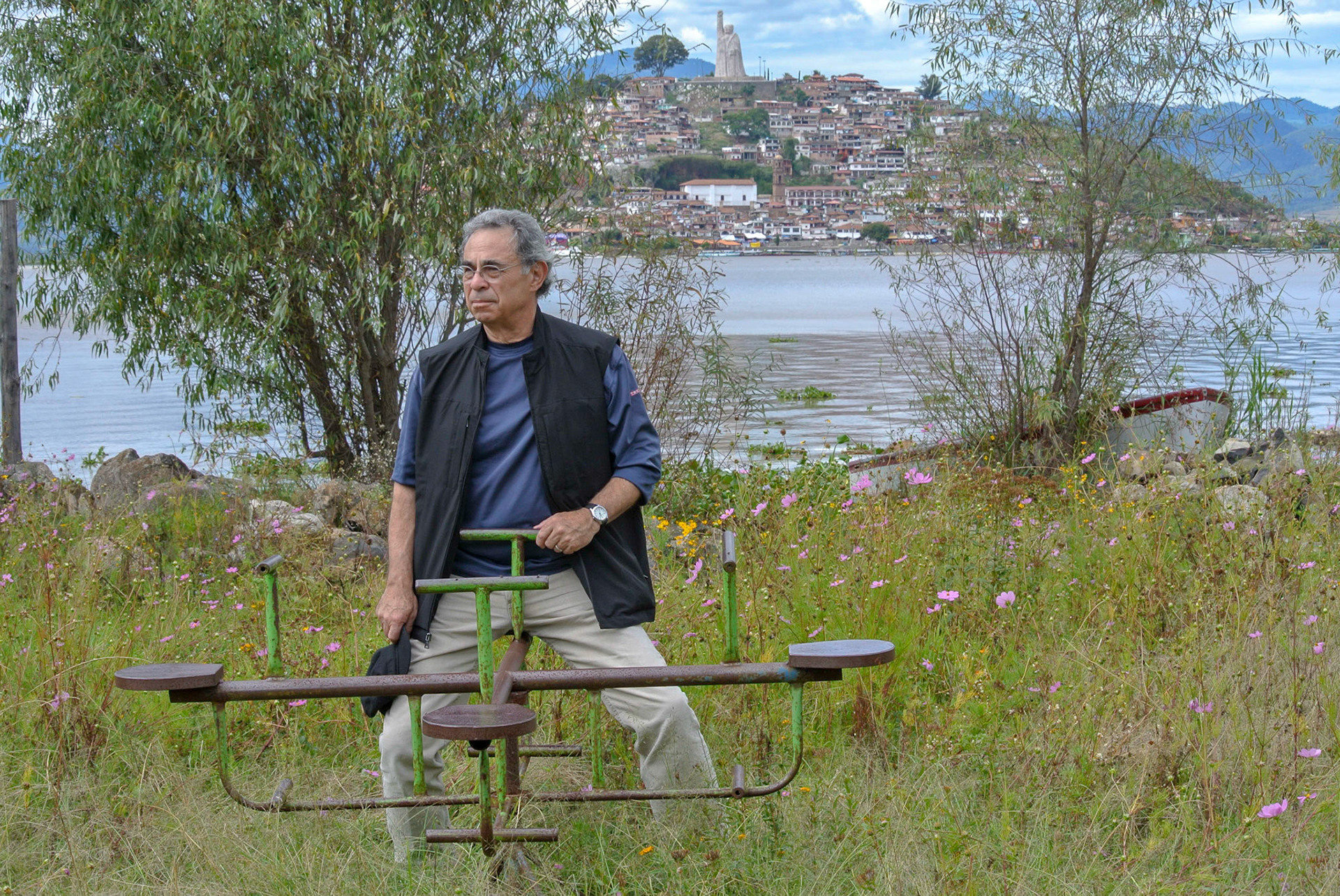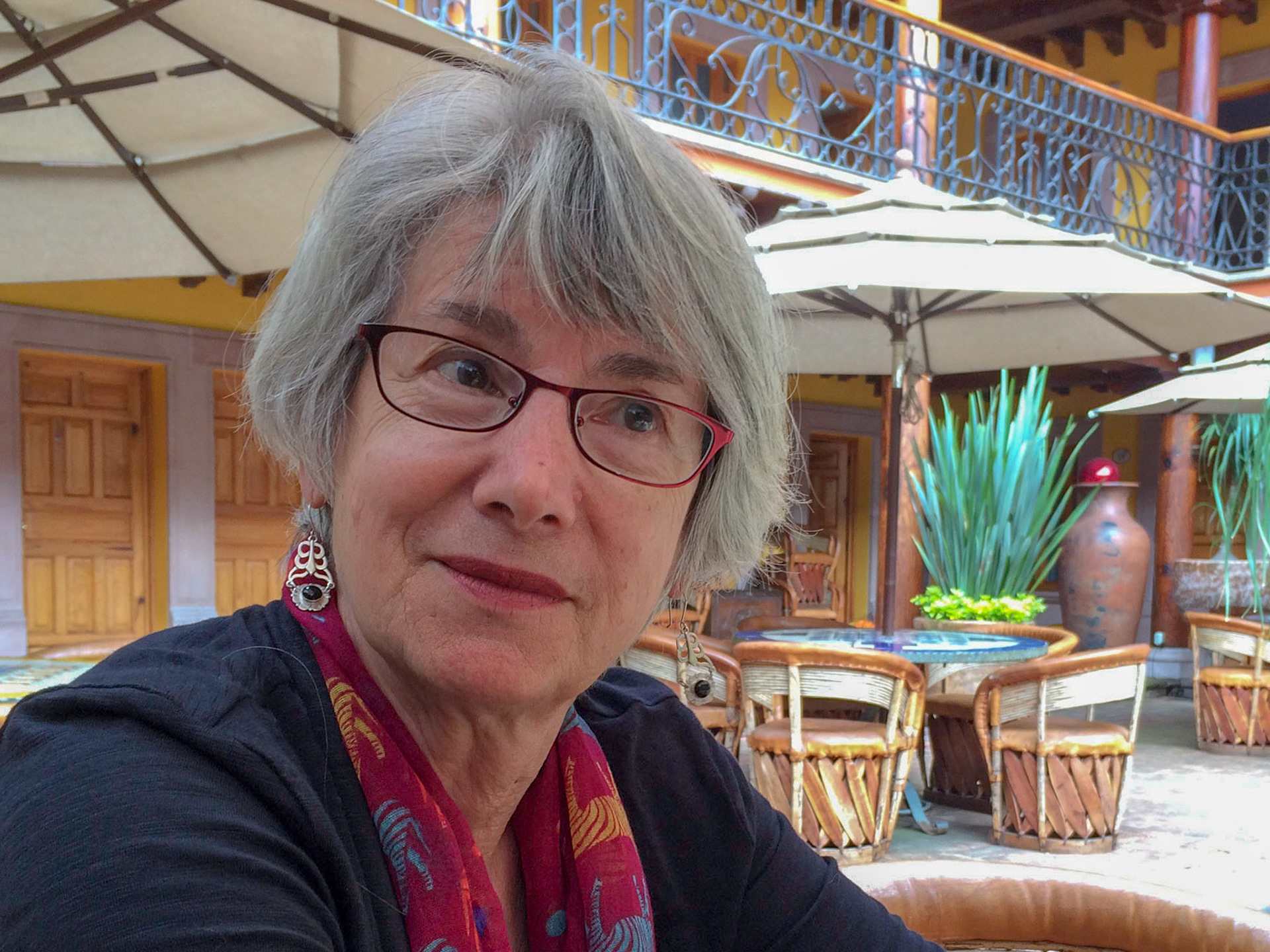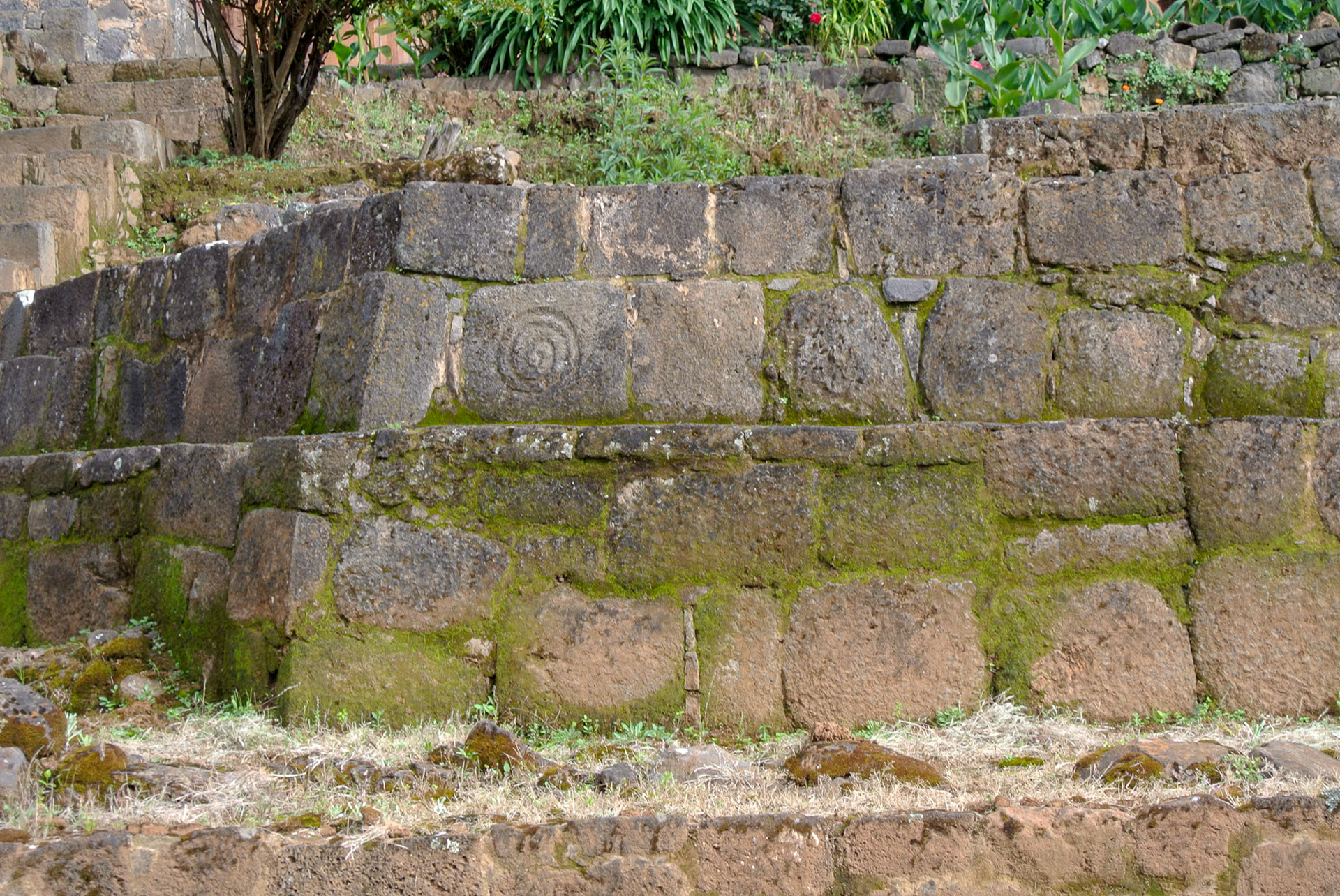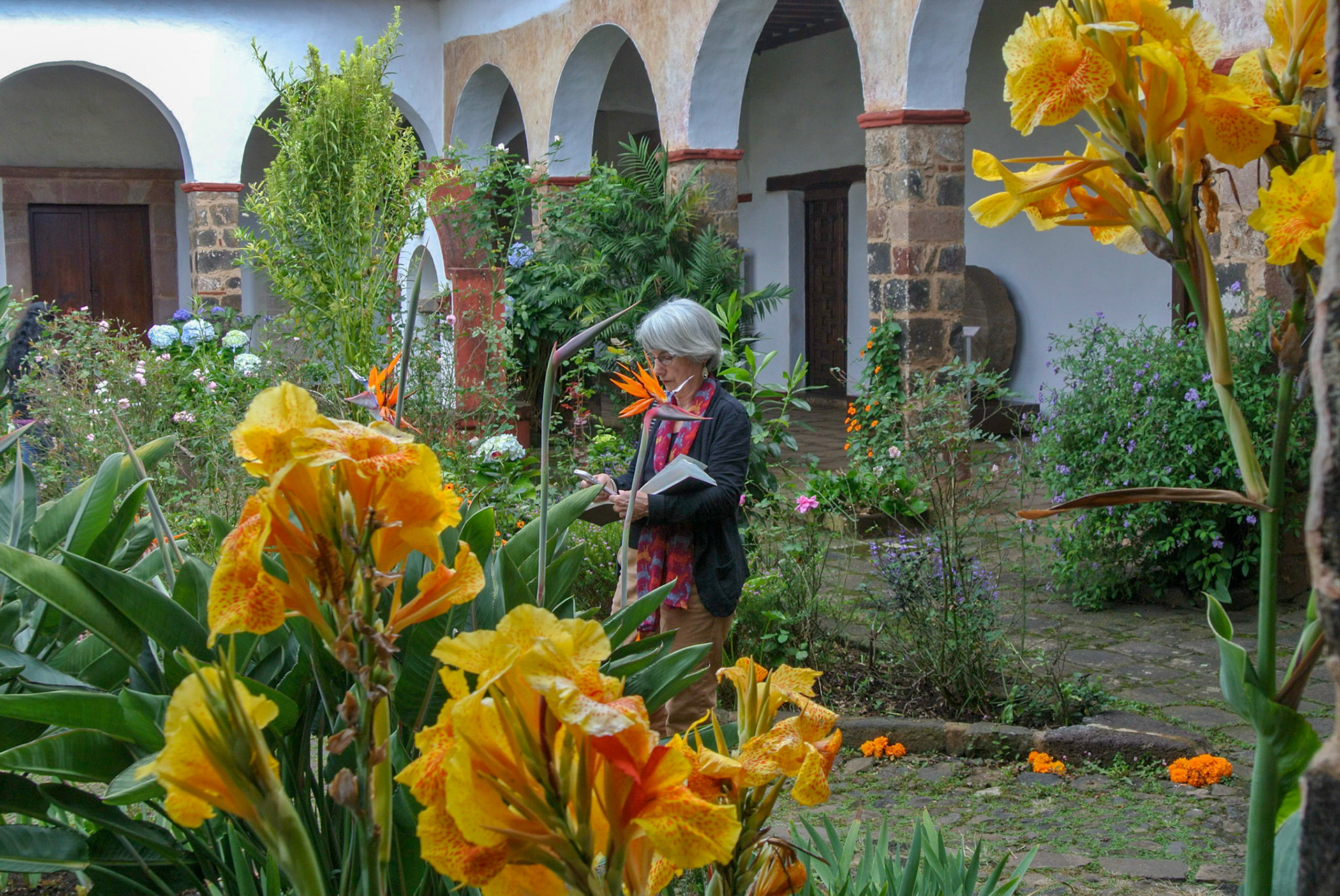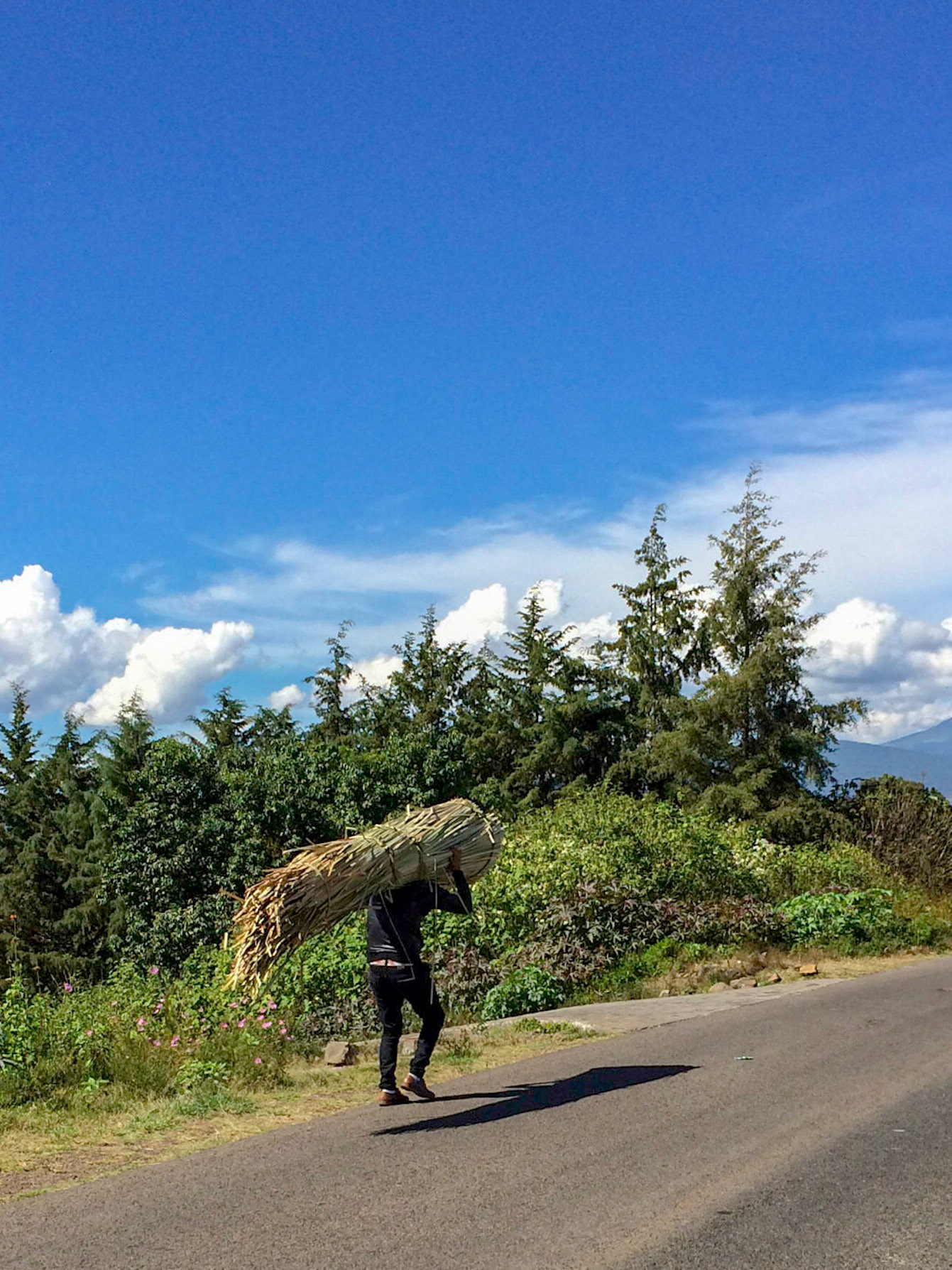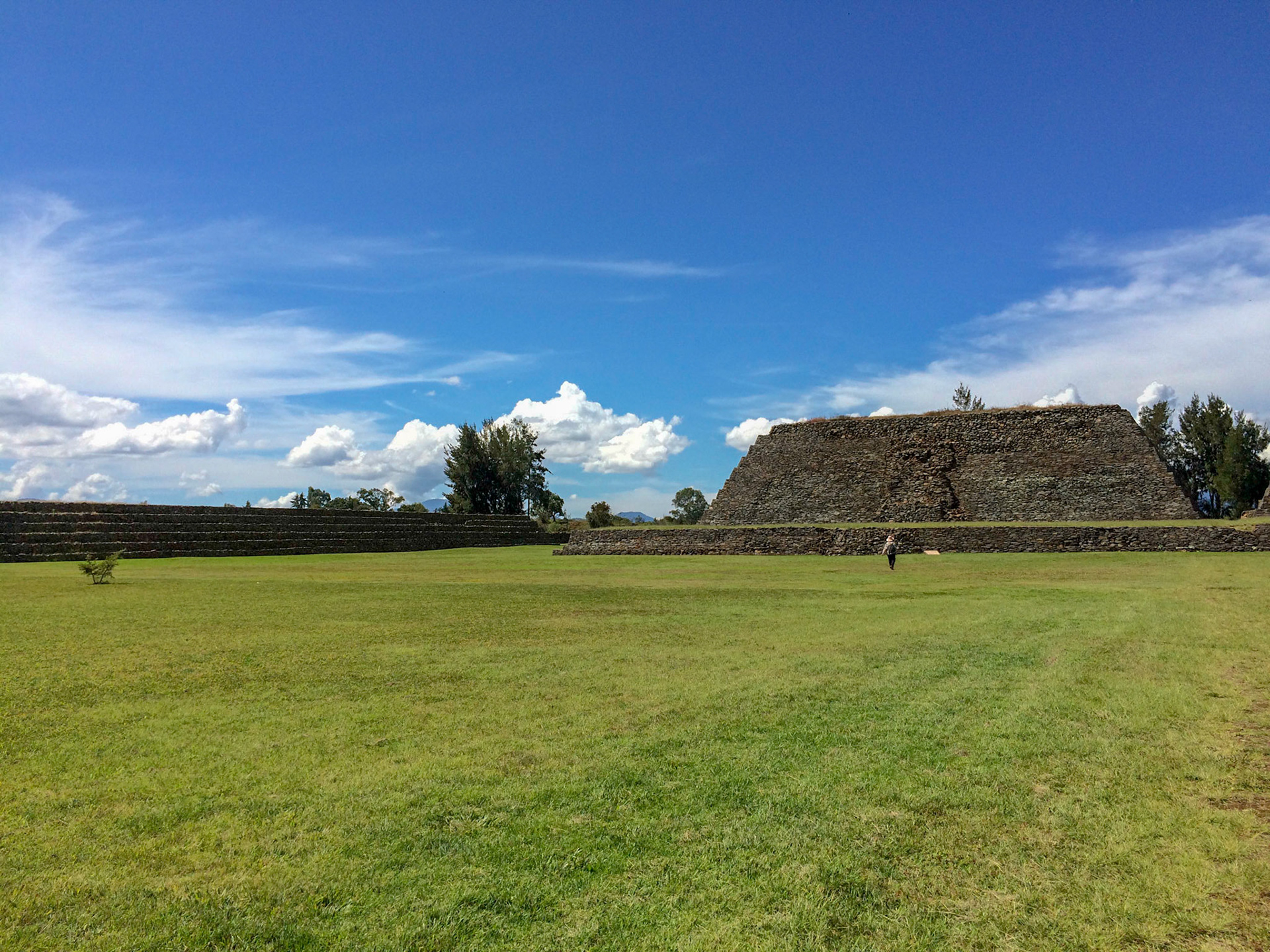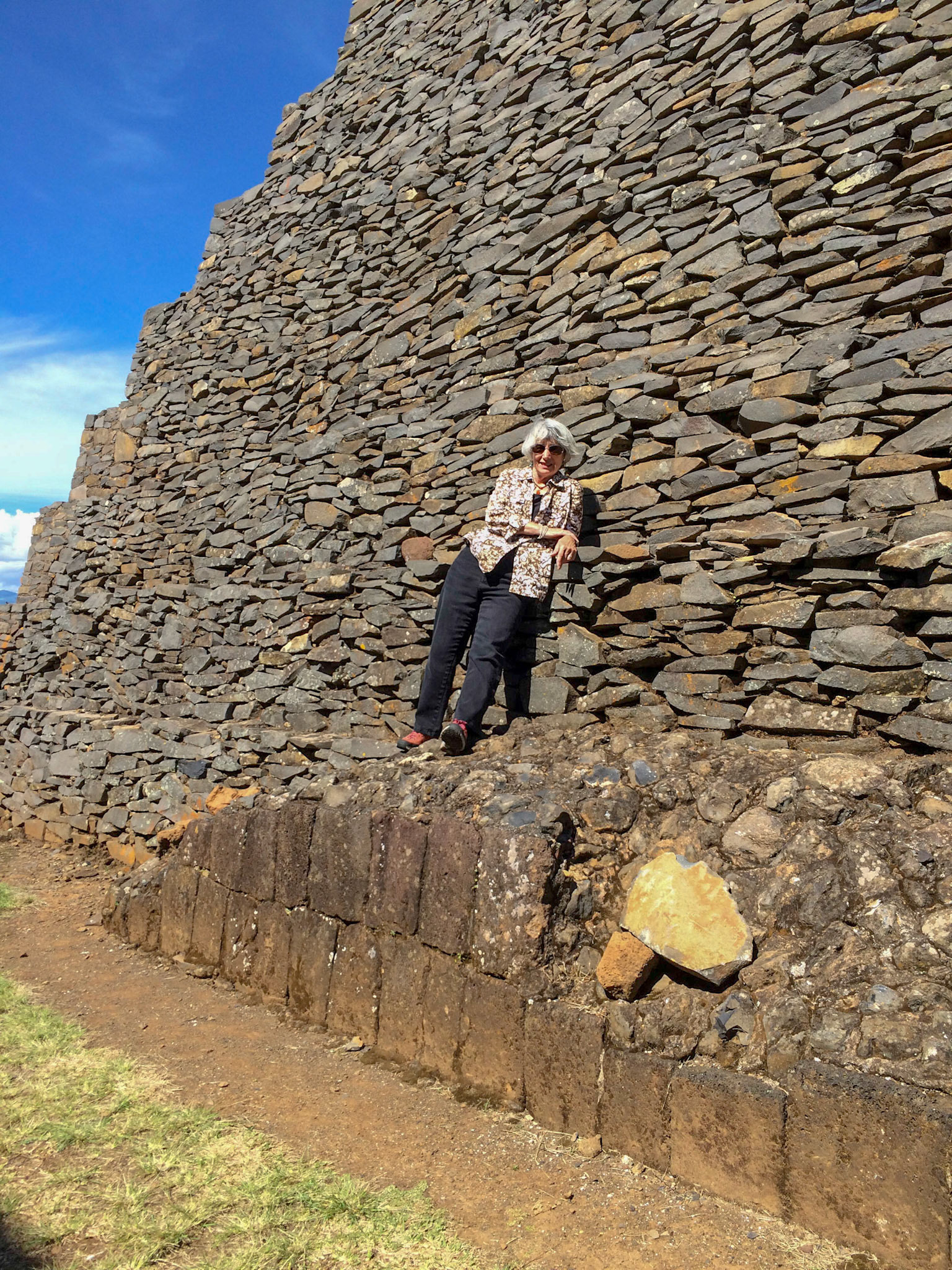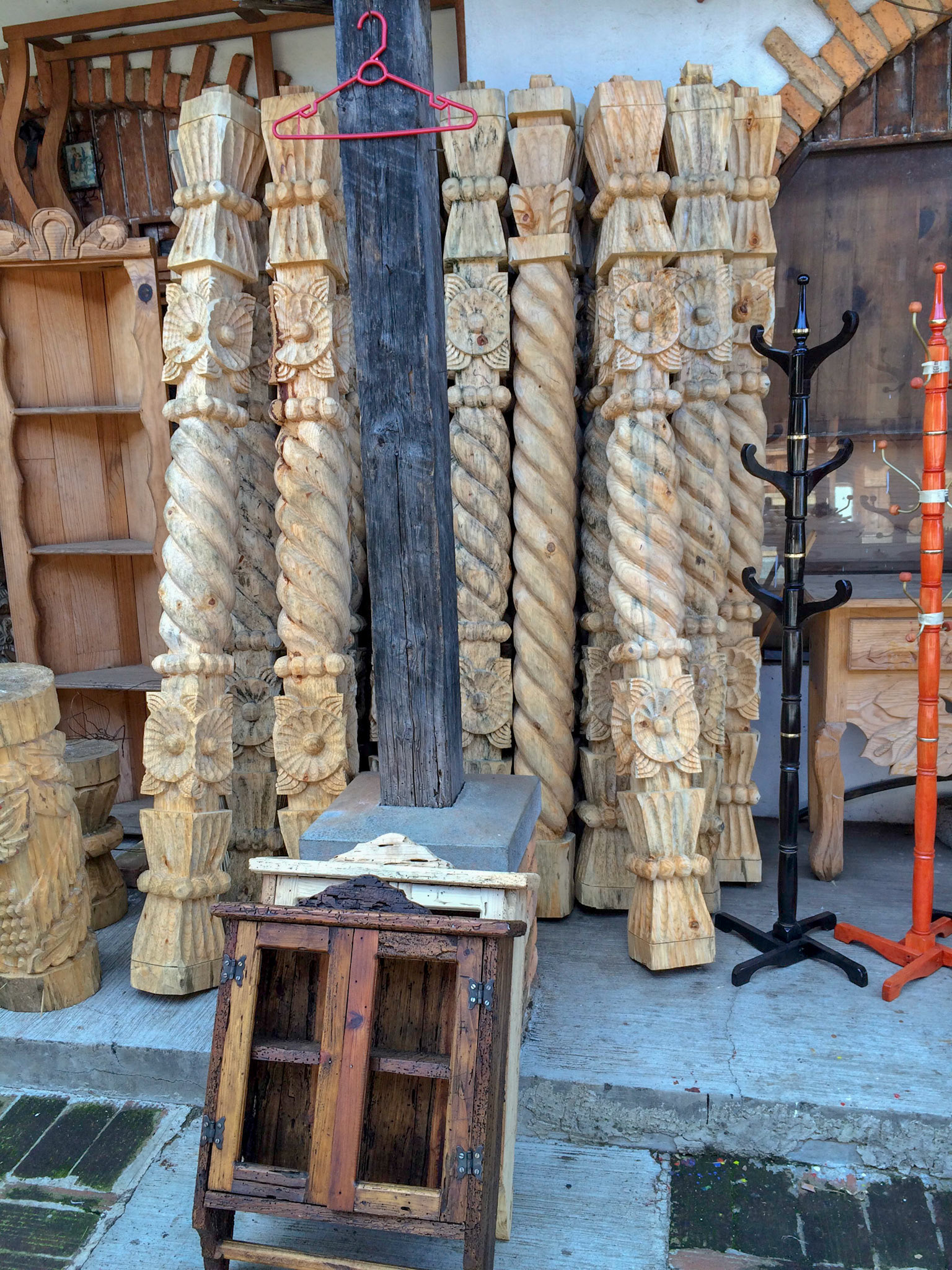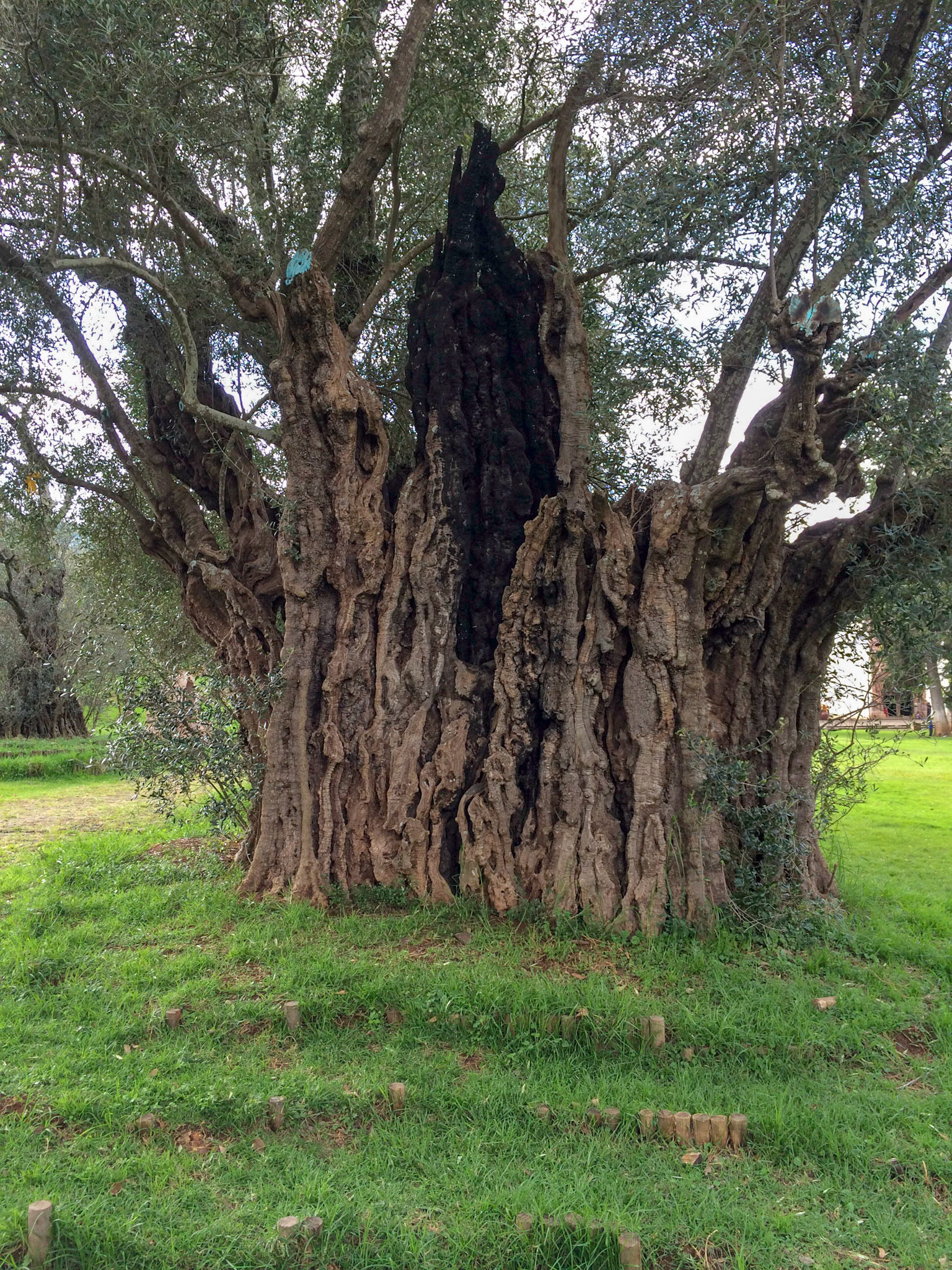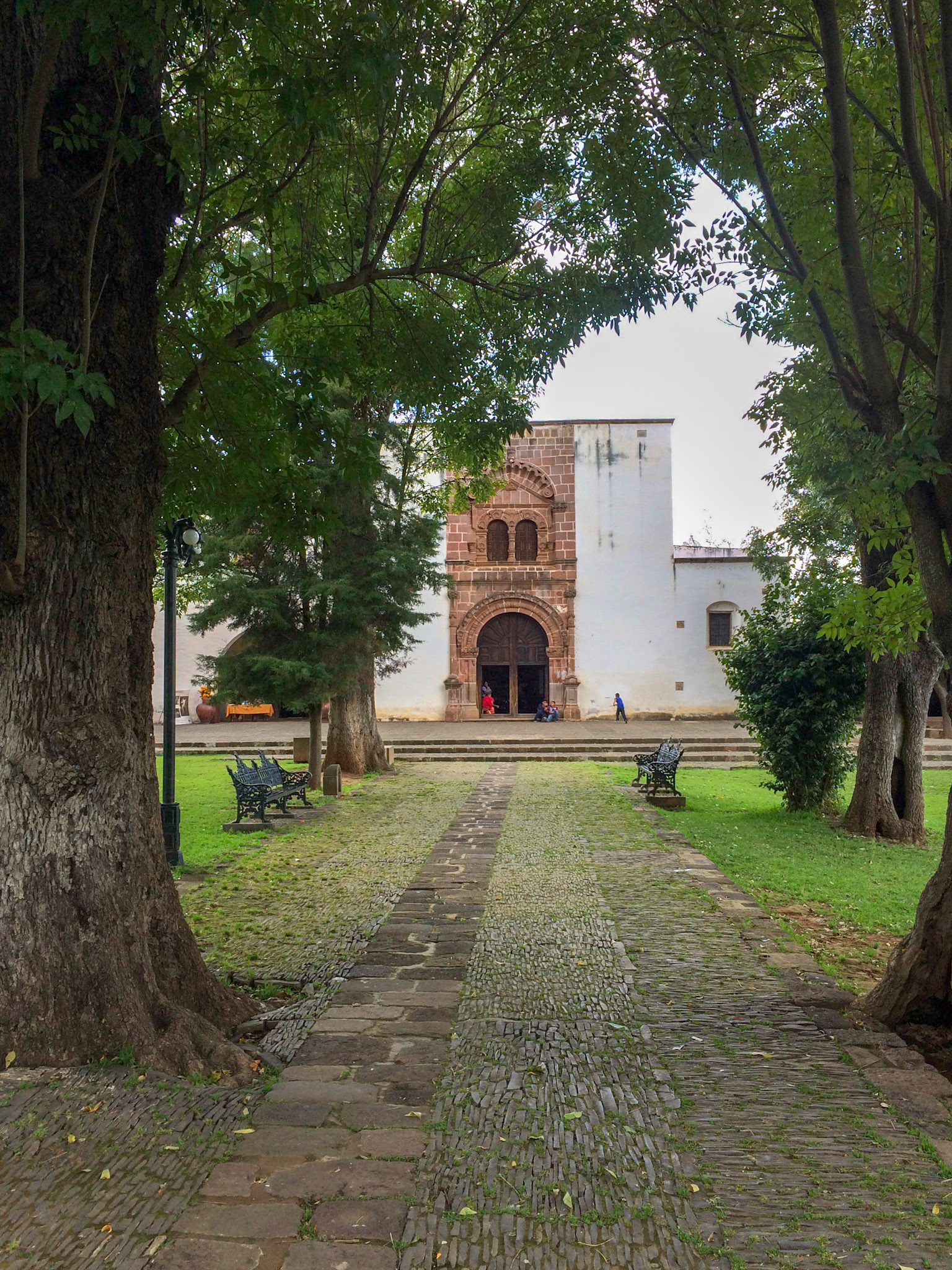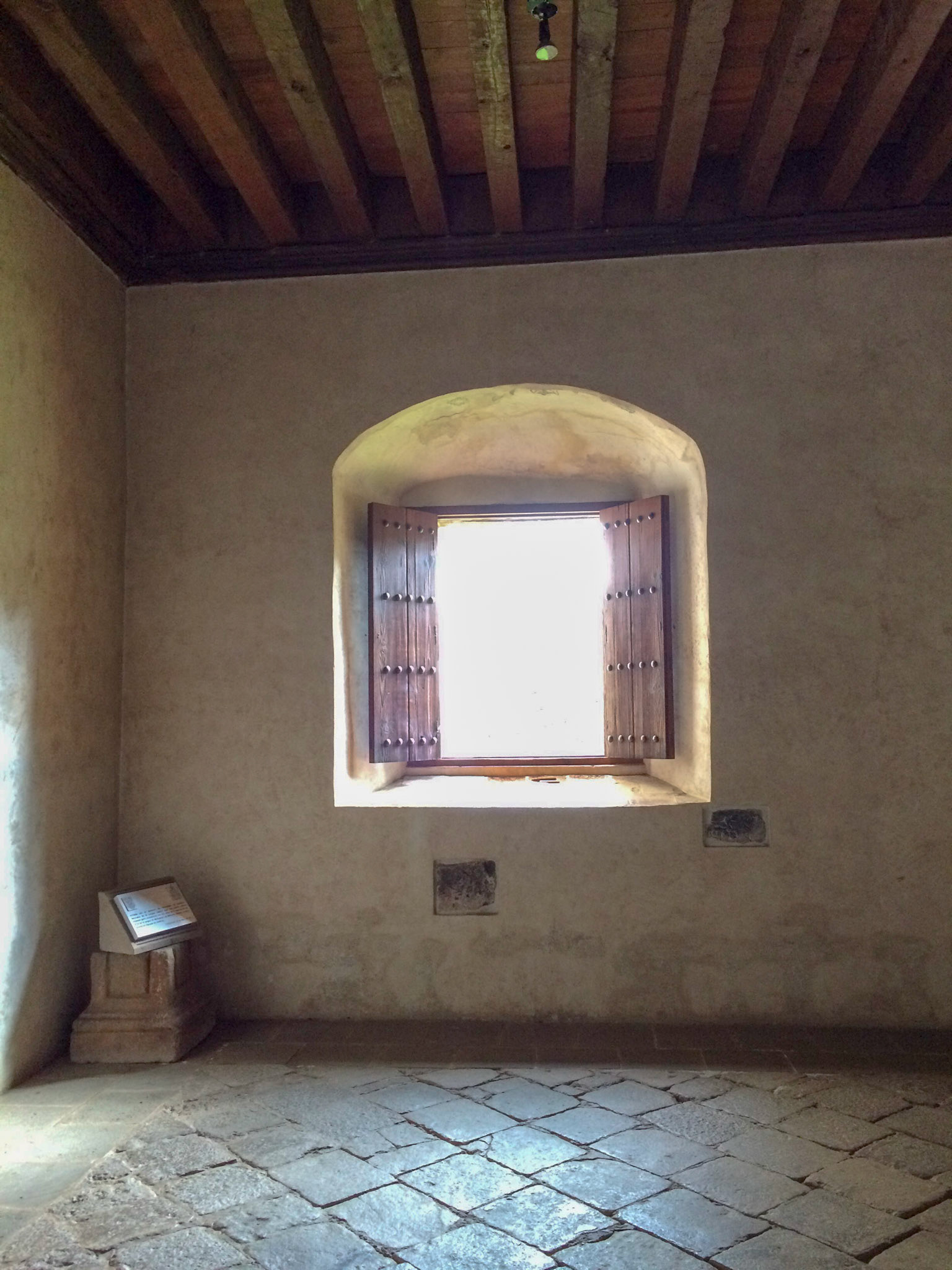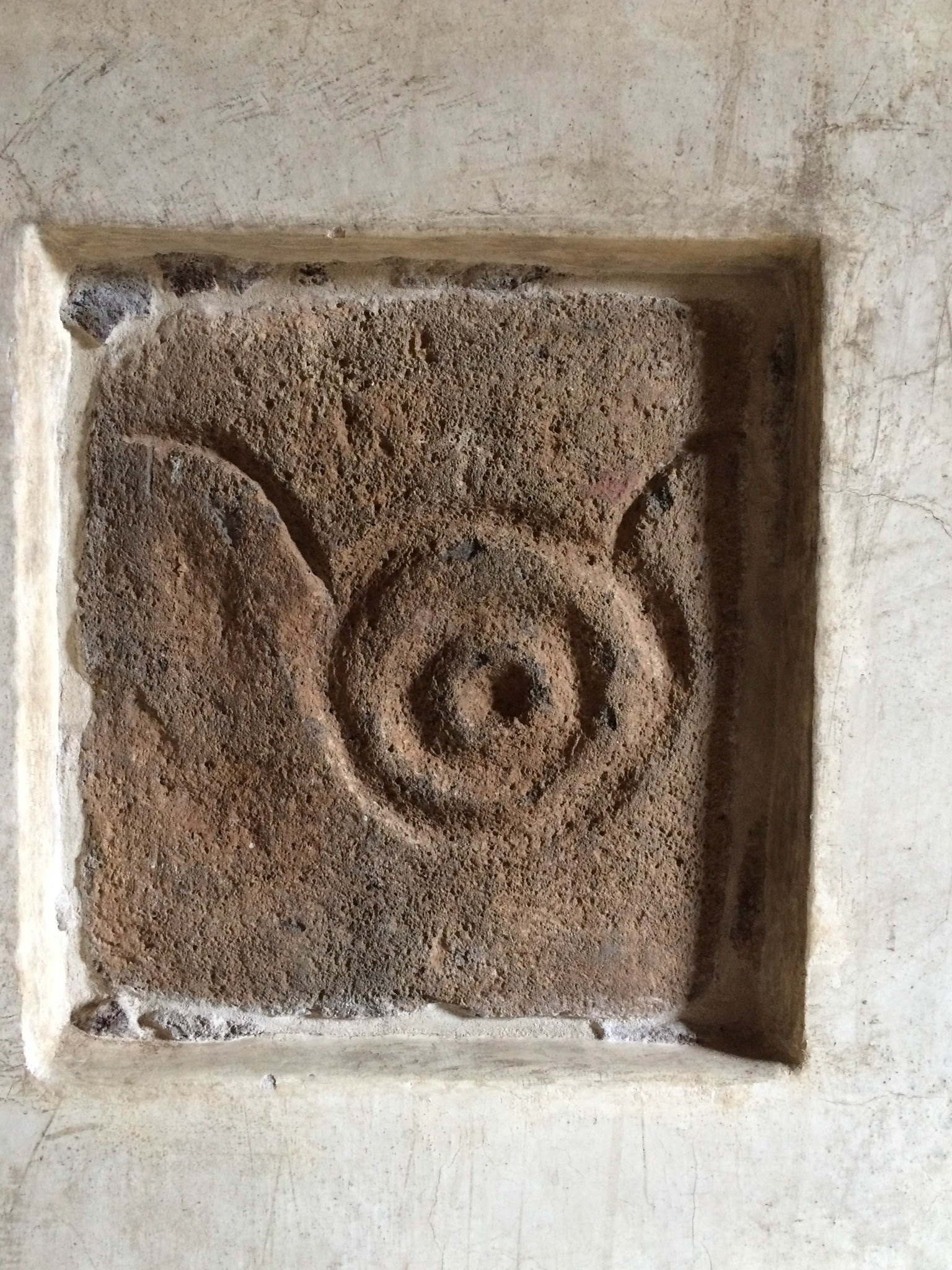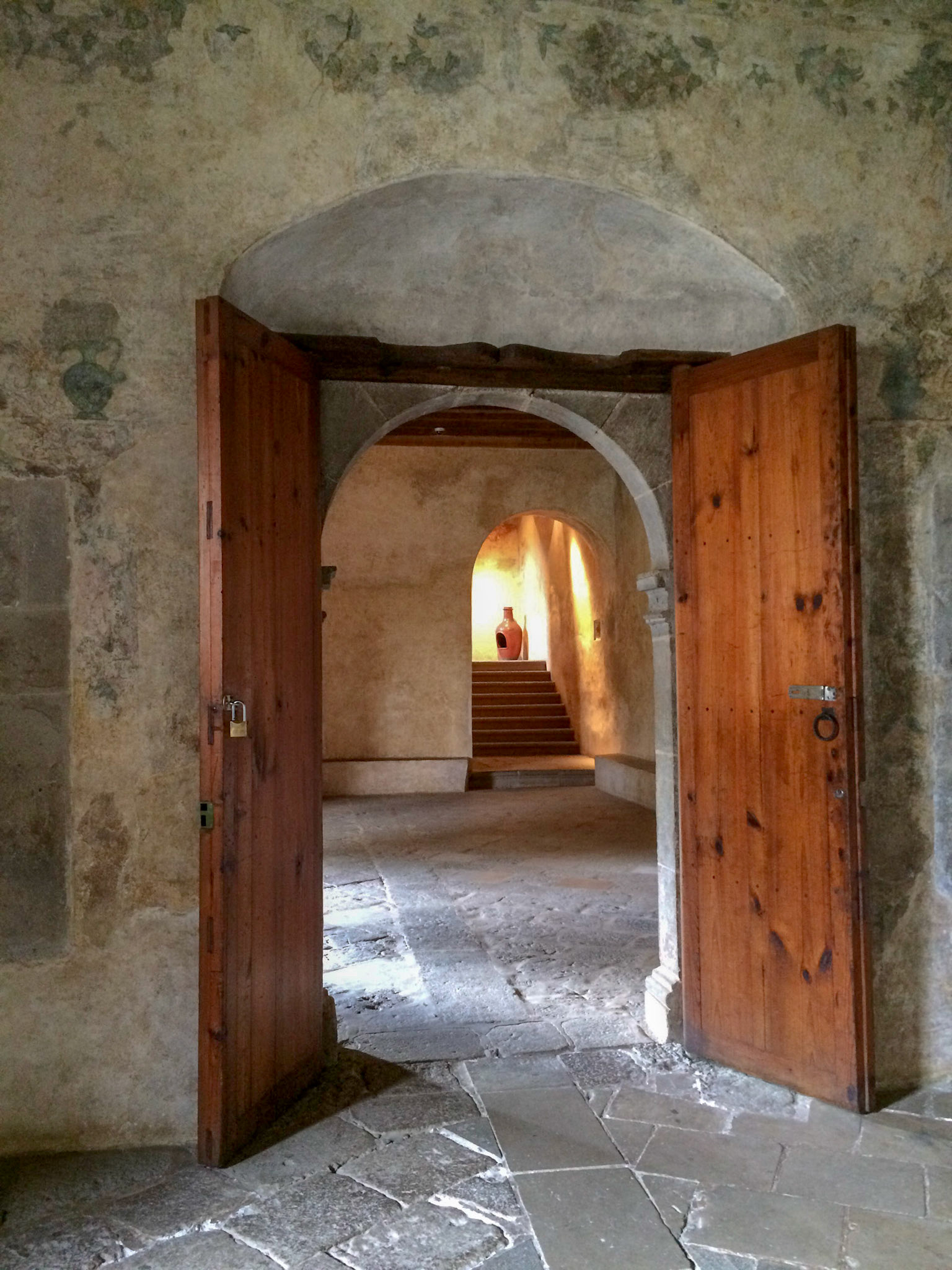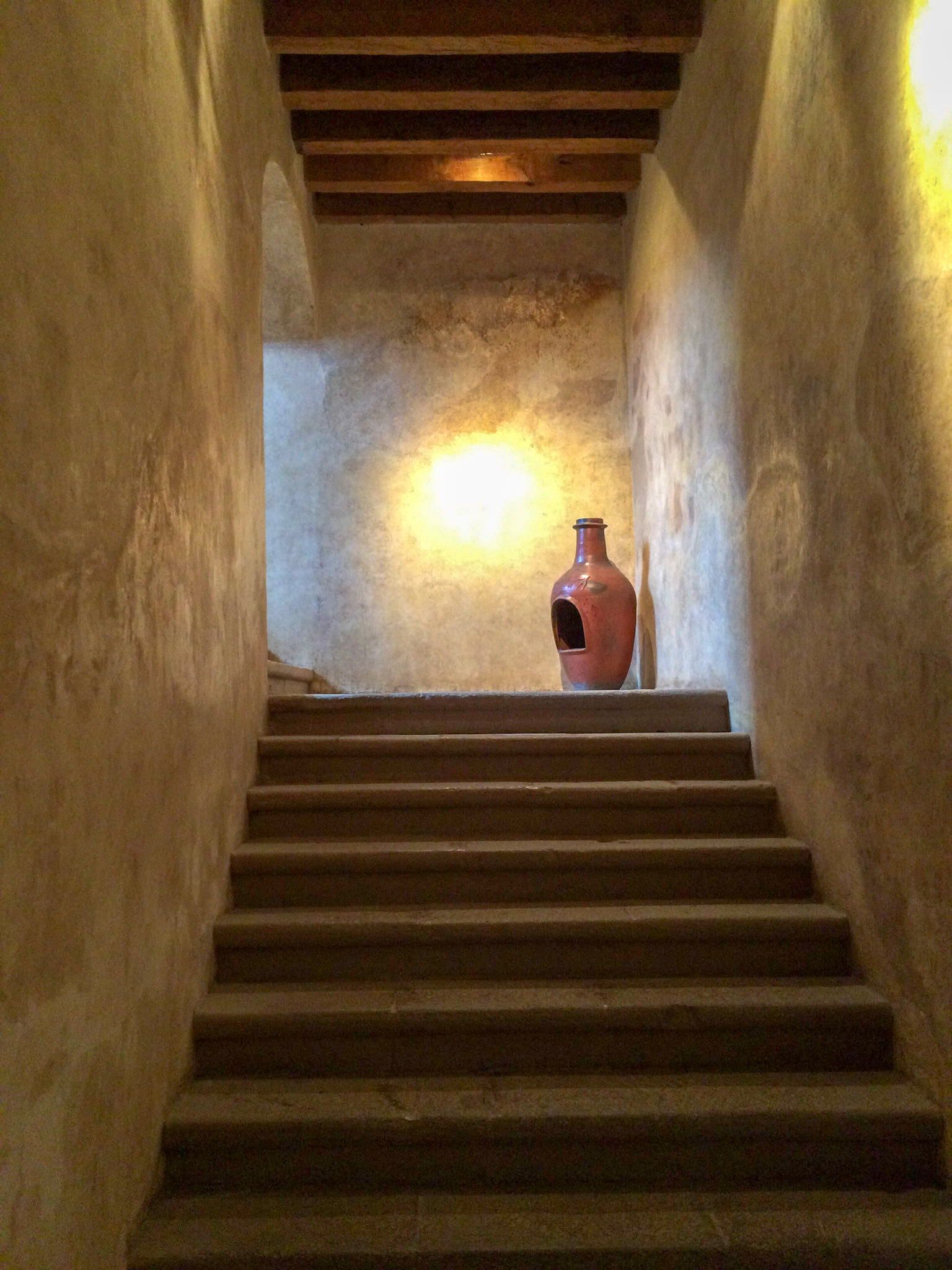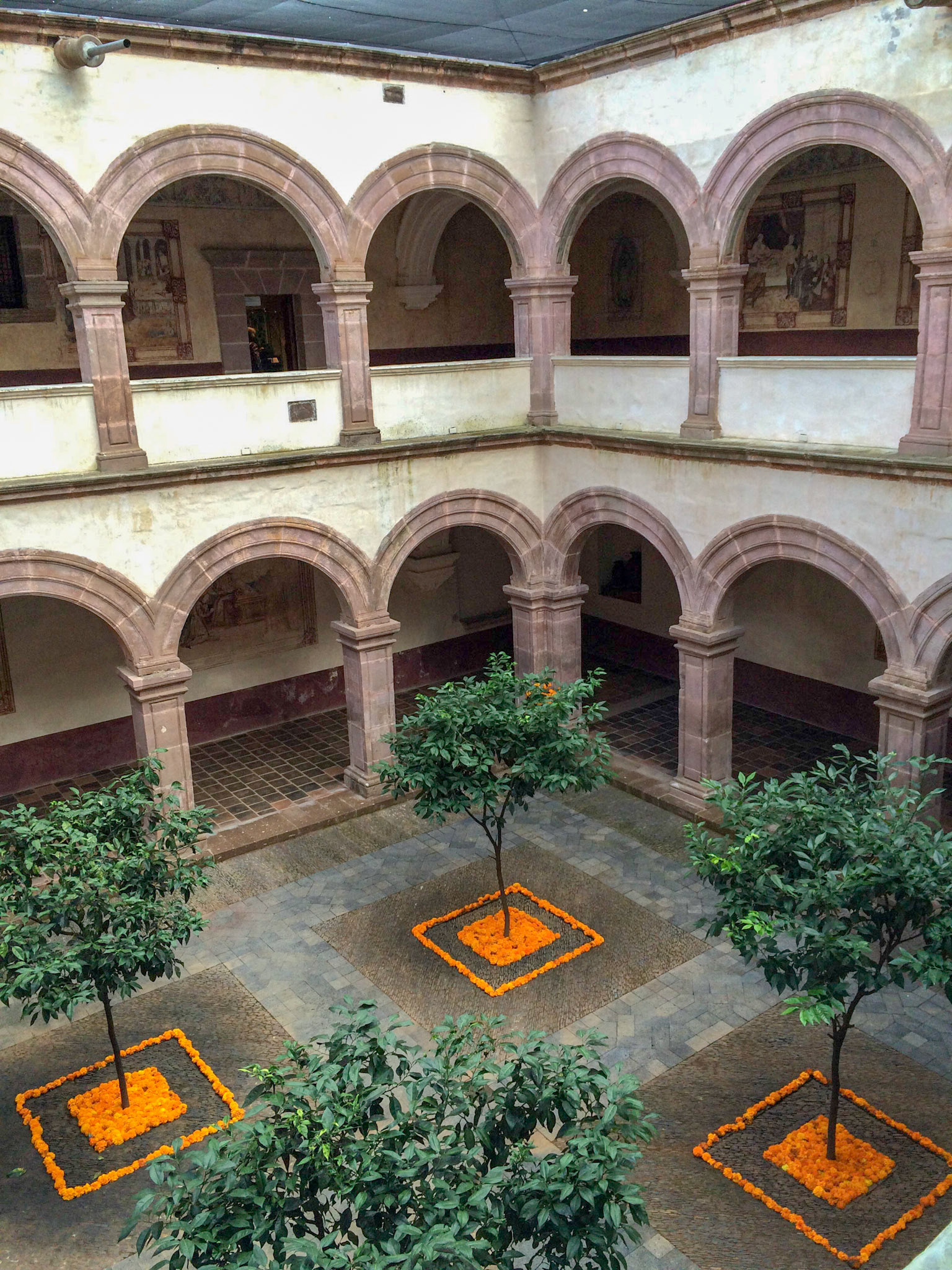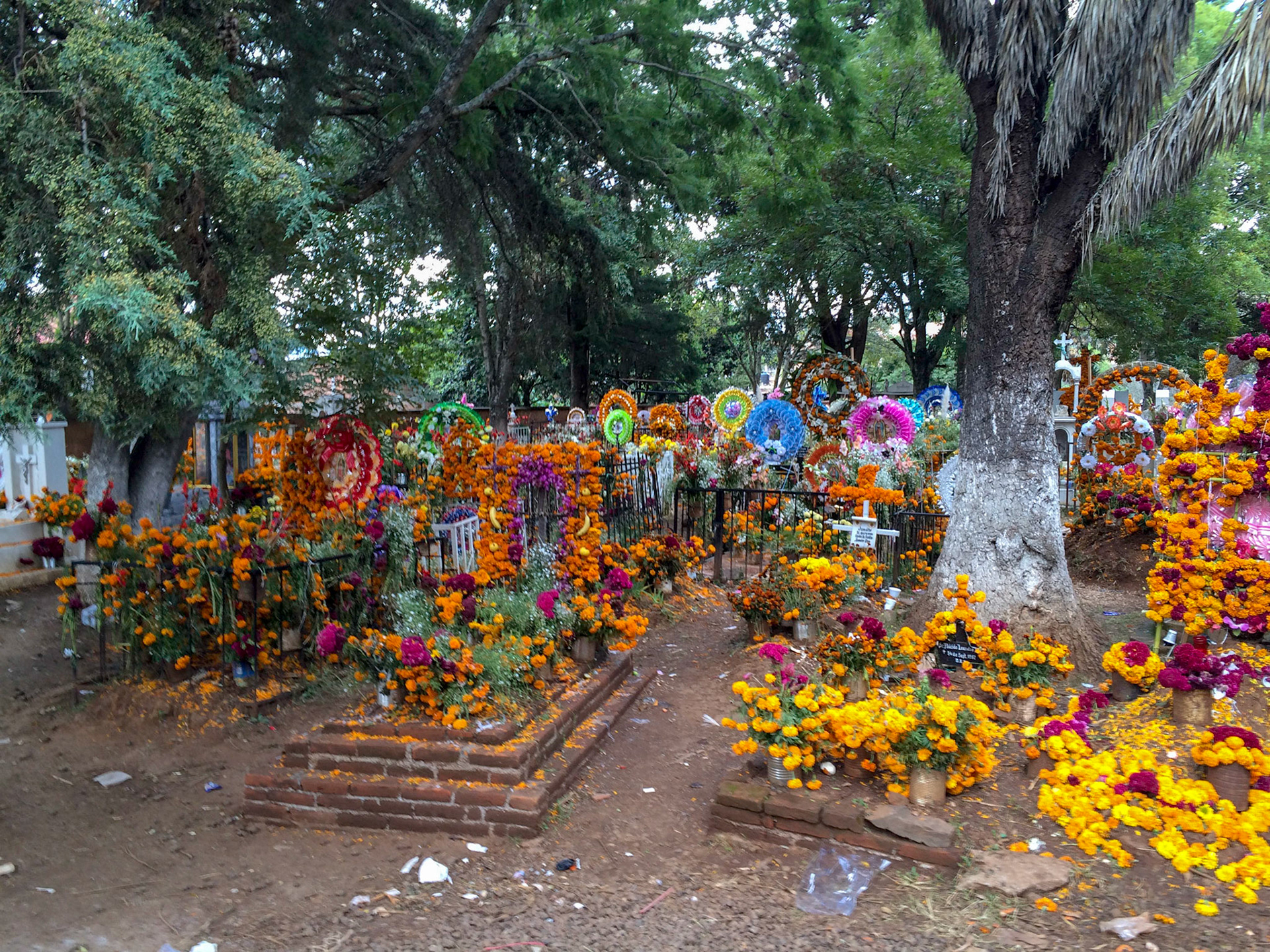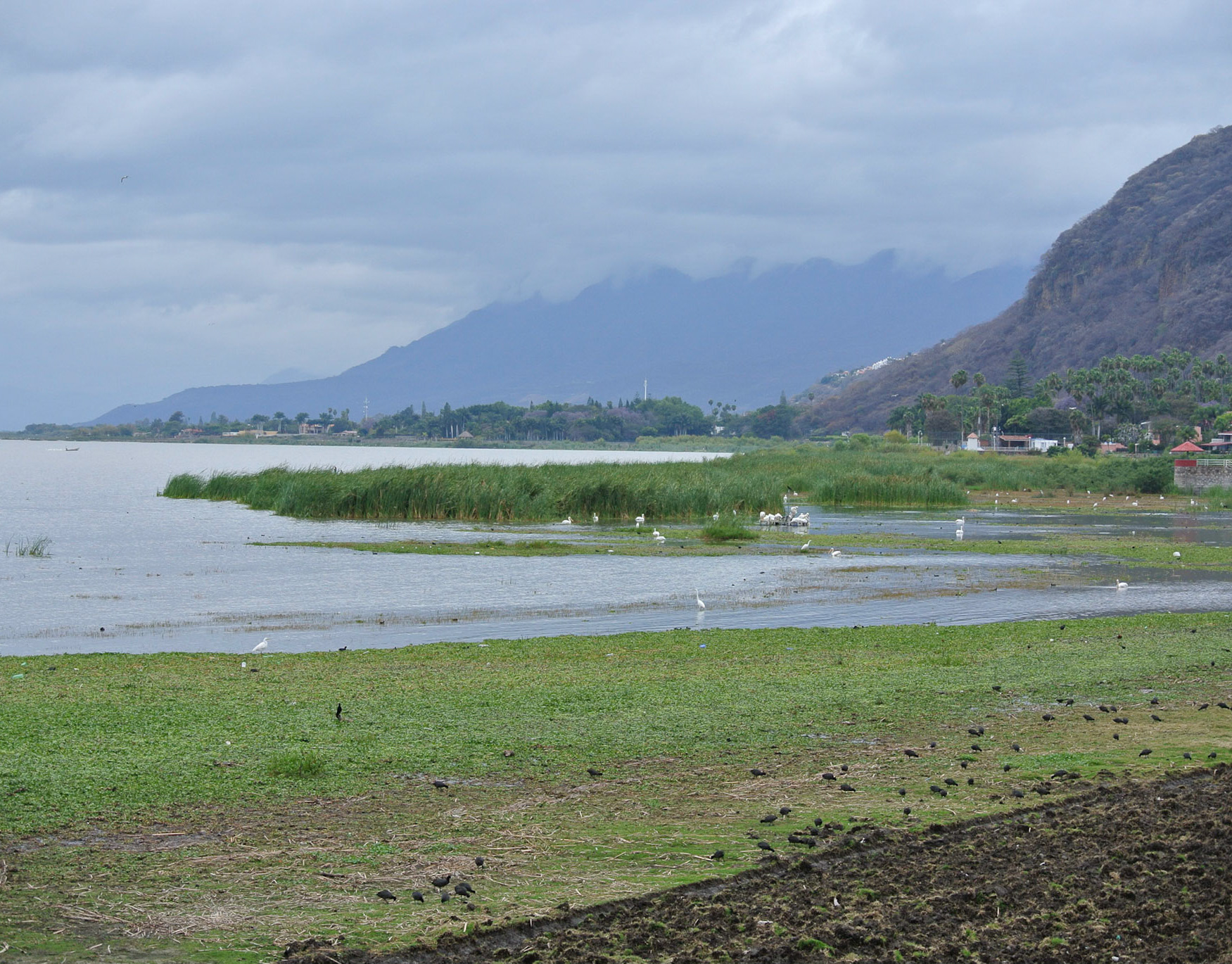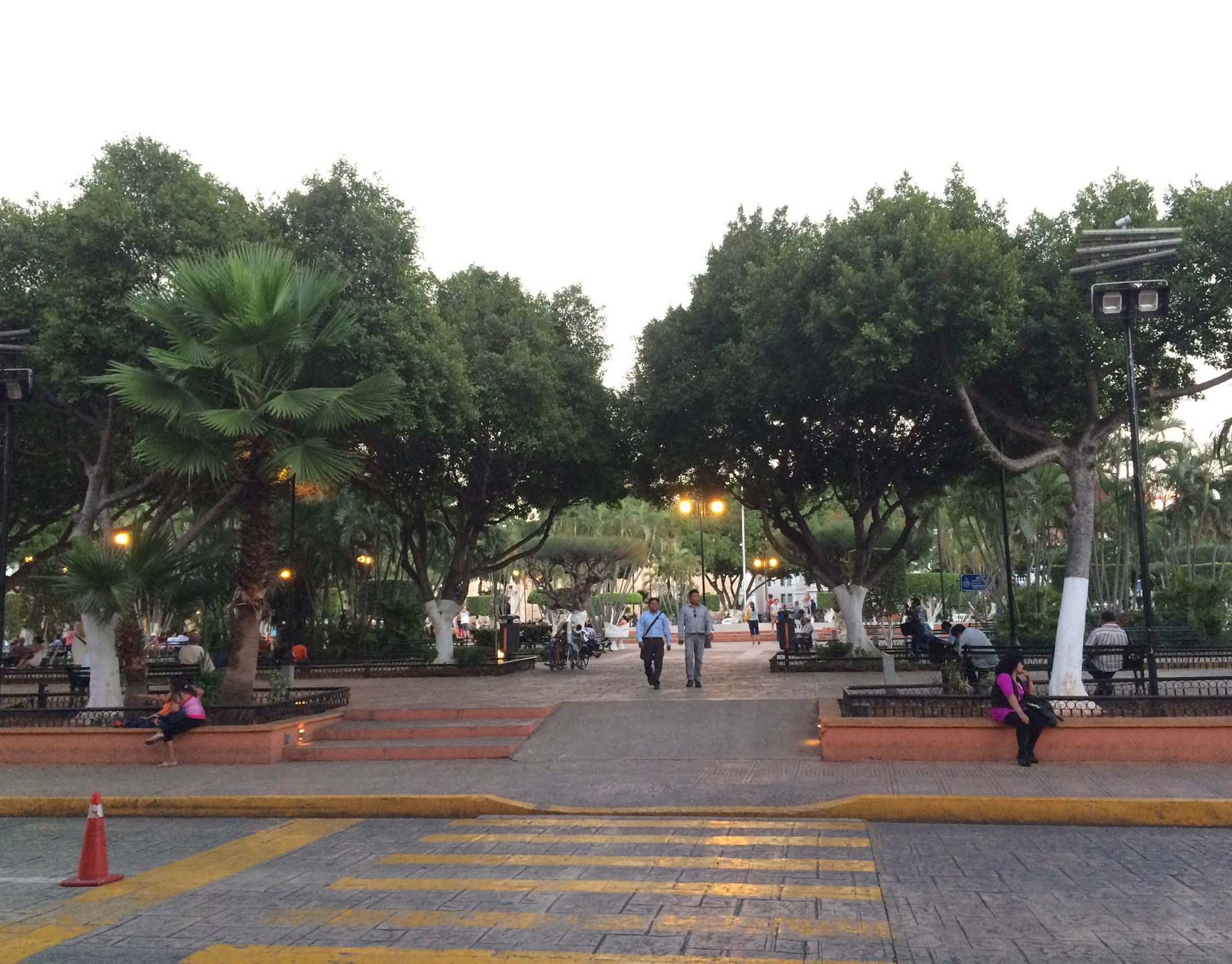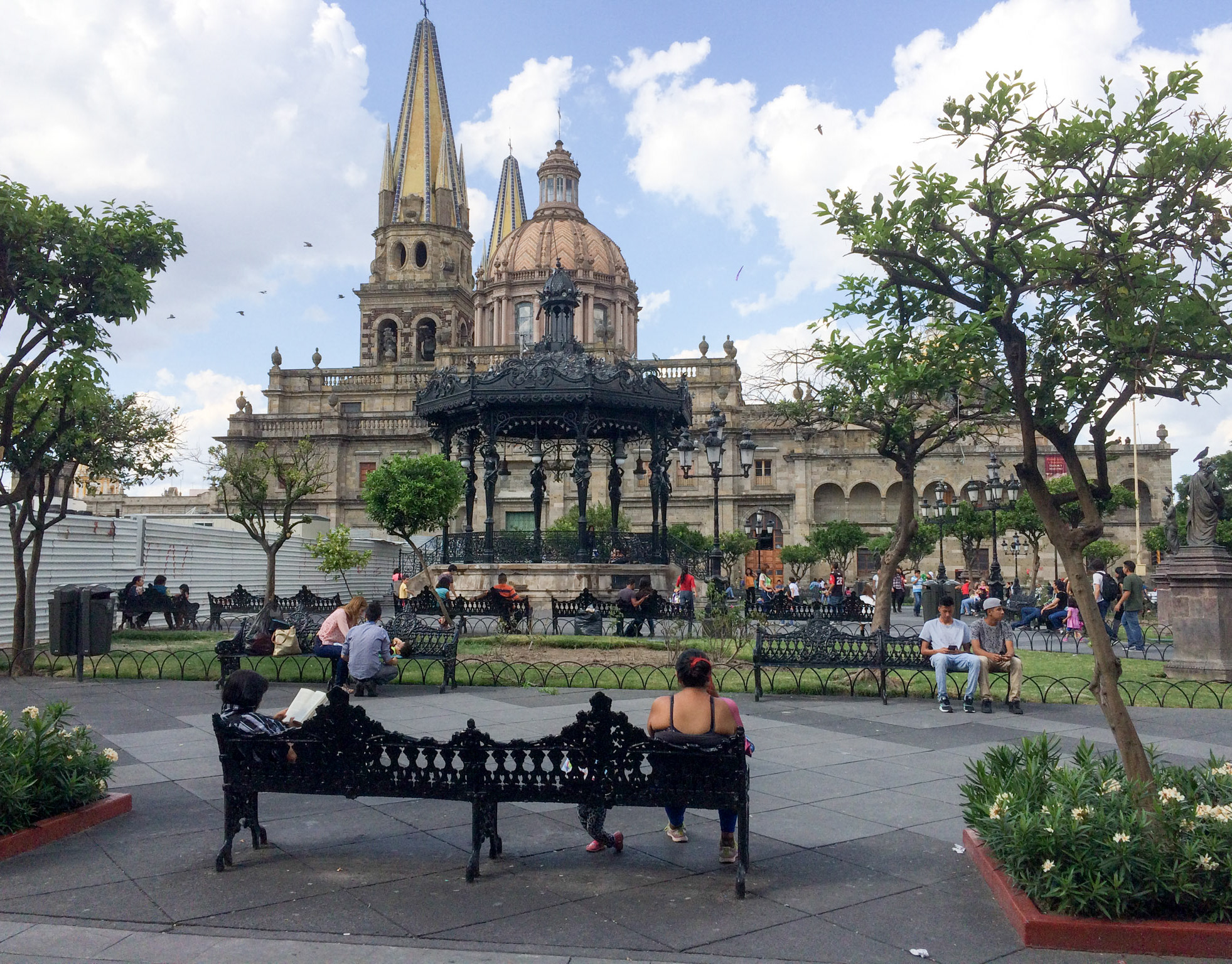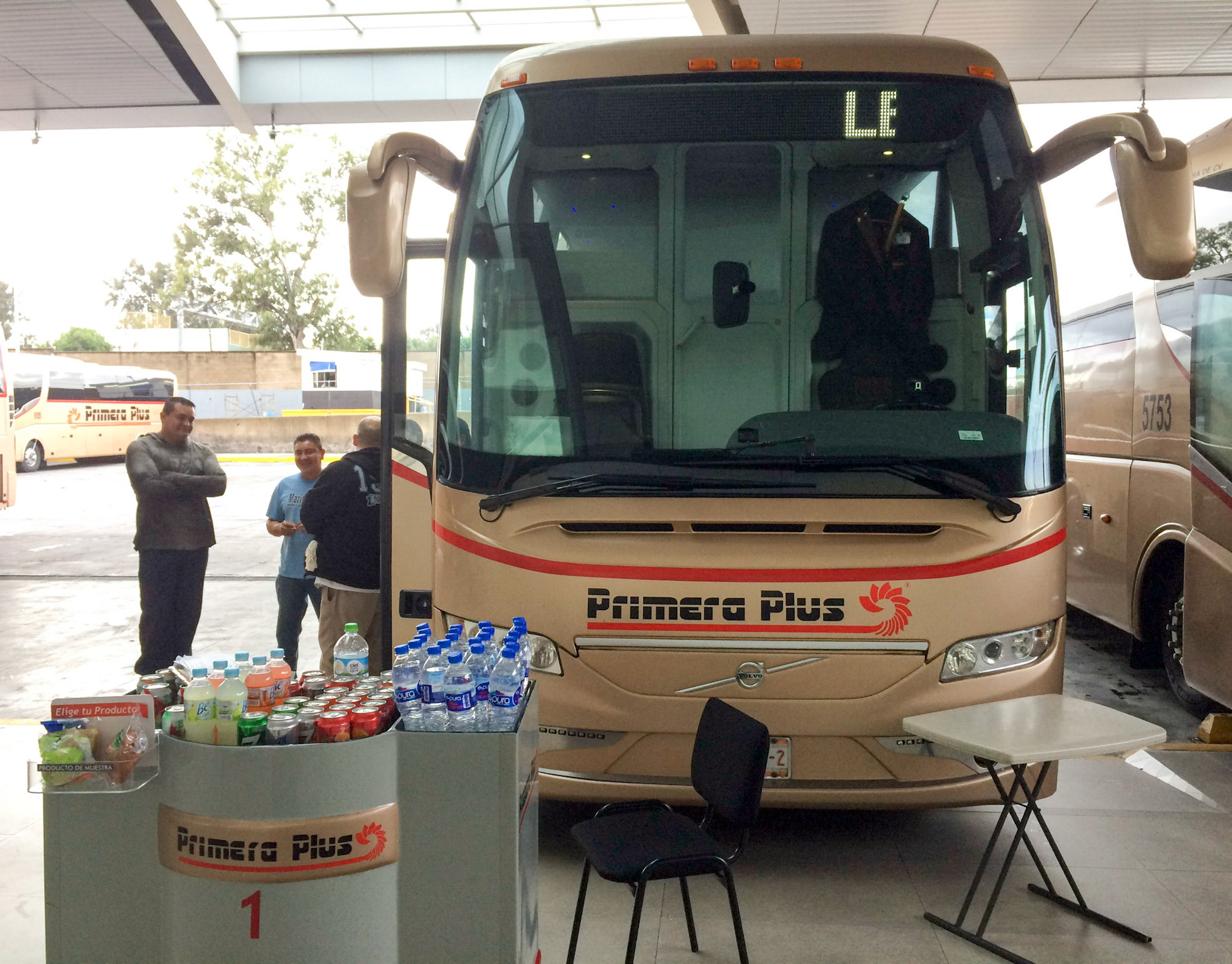Our next bus ride was on the 30th from San Miguel de Allende to Patzcuaro. This was, in many ways, the focal point of our trip planning—to be here at one of the country's largest lakes to witness on an island the local celebration of Night of the Dead and then Day of the Dead.
Dia de Muertos, Day of the Dead, is November 2.
Noche de Muertos, Night of the Dead, is the evening and night of November 1, lasting until the morning of November 2.
We knew the usual too little about the place and its natives, having only read wikis and some travelers' accounts. Also, as usual, we were willing to absorb as much as possible.San Miguel had been quite different from Guanajuato, which was our wild card hit right after Guadalajara. We try to travel where there aren't American expat settlements, especially in third world countries, though we'd done it earlier in the year when we'd been in Lake Chapala and Ajijic for a writers conference sponsored by such a community. It's not that there aren't good and interesting people there. On the contrary, they're often there in abundance, but it skews our experience of the place.
In Guanajuato, there's clearly an expat community, but the weight of that city's size, history, and political importance dominate and other than the fact that it loves being a tourist mecca, it's a Mexican state capitol in an important industrial, mining, and farming region. San Miguel has been an American artists colony for so long that it feels less Mexican than elsewhere, though its Baroque/Neoclassical architecture is beautiful and alluring. In such a place it is easy—too easy—to not master Spanish and to be the employers of natives. Since being named a World Heritage site, attracting thousands more tourists and new residents from abroad, it is even more an expat destination. However, we wanted to stop there to visit our friend Eva Hunter who lived there for many years until recently and loved it. I'm glad we stopped and grateful for her wonderful tour of the town and her literate narrative.
Patzcuaro is much smaller than either SMdA or Guanajuato and it's much less developed. Except for the language, it could be in another country. We selected it because of the reputation of its celebration of Night of the Dead, but also because the area is renowned as a center for crafts—silver, copper, ceramics, etc. We were not disappointed.
We arrived in Leone by bus and were picked up by one of our hosts and his daughter for the fairly short drive to their B&B near Patzcuaro. Our first excursion into town was to visit the enormous craft and music celebration set up in the main square, although it was actually taking over much of the city. What we immediately wished for was a semi to haul a load of stunning art and crafts back to Portland. Instead, we got several small things to carry home in our suitcases for our daughters and friends.
Here's a journal entry I made:
"Today begins our third day in Patzcuaro. Actually, we are at Casa Santiago, a B&B in Santiago Tzipio, about fifteen minutes from the small city and a ten-minute walk from Lago de Patzcuaro. We are close to Cucuchucho. This morning, we took a boat to Janitzio, the island where one of Mexico's major Noche de Muertos celebrations takes place. We wanted to go before the zillions of other tourists descended, so our boat ride was through an appropriately ethereal fog—dawn of the dead, and once there, we watched the islanders, mostly indigenous people, build altars in their cliff-side cemetery. Marigolds by the thousands, with their petals strewn over graves and along pathways.
"Yesterday, we took the next Combi (as local mini-vans are called), one of many, into Patzcuaro to wander the amazing crafts mercado that is part of the annual celebration. There was also entertainment galore and, of course, wonderful food.
"On this trip, we've had two astonishing B&B experiences. In Guanajuato and now here. Our hosts here, Kevin and Arminda, we soon discovered, share much of our politics, and that opened many doors for discussions of local history and Mexican politics. Kevin is from the states. Arminda is from this village. Later today, we'll join them and their large family of children and grandchildren in their celebration of those who have died. They've built a life together here that is rich with family and friends, and they are marvelous hosts.
"Discovering our common social consciousness, Kevin has given us copies of books and poetry by John Ross, their good friend who died here with them several years ago in the room we've rented. John, it turns out, also shared our views, and I realize that I've known of him without knowing him.
"I just read a eulogy to John by the writer Frank Bardacke that begins: 'All the Right Enemies.' That's a good measure. John fought against injustice in the Americas, north and south. He was beaten by cops from Europe to Palestine, standing against oppression no matter the consequences. And there were always consequences.
"And for this day, I offer the final lines of a long poem of John's titled 'Against Amnesia' that brought tears to my eyes:
never leave the past behind
because the past will never go away,
the past is like a boomerang.
it will always return,
it is always present,
it is always future,
it is the most fundamental human right,
memoria,
what belongs to us all."
_______________________
This was another adventure full of surprises. Little of our preparation had given us much of a sense of place and people. We had to be there. Wherever we wandered, we felt welcome. Plus we were lucky in the other guests who shared Casa Santiago. We were a mix of nationalities, cultures, and ages who found each other welcome company around the table.
